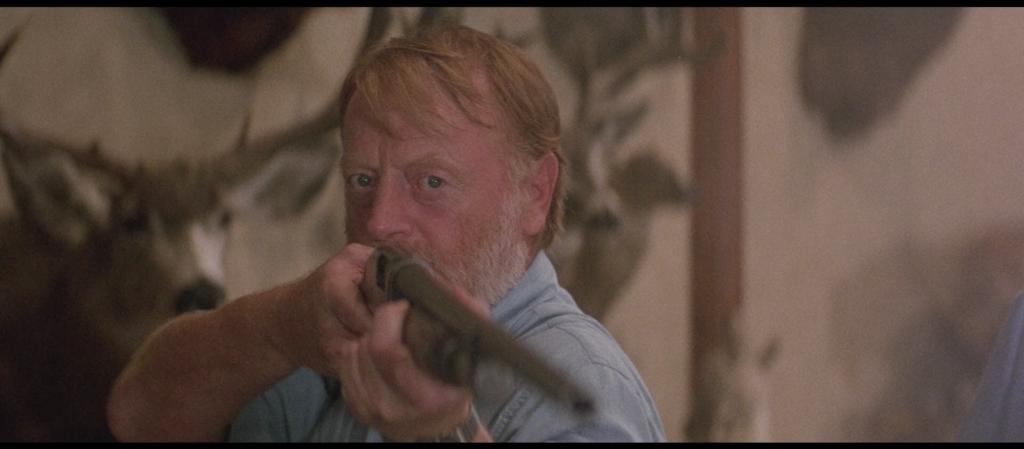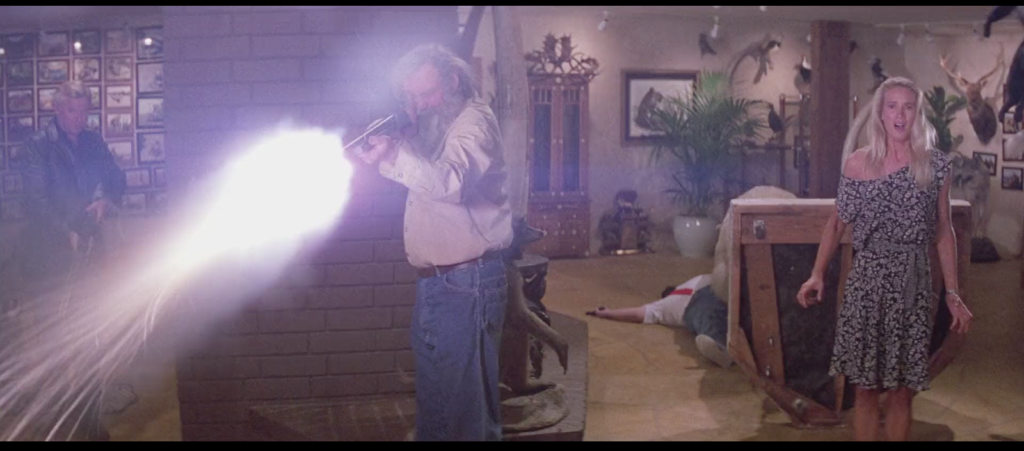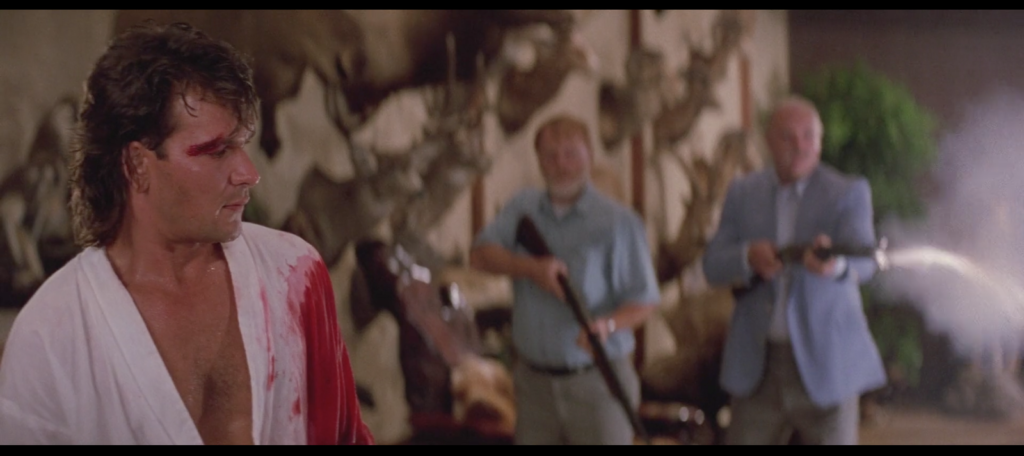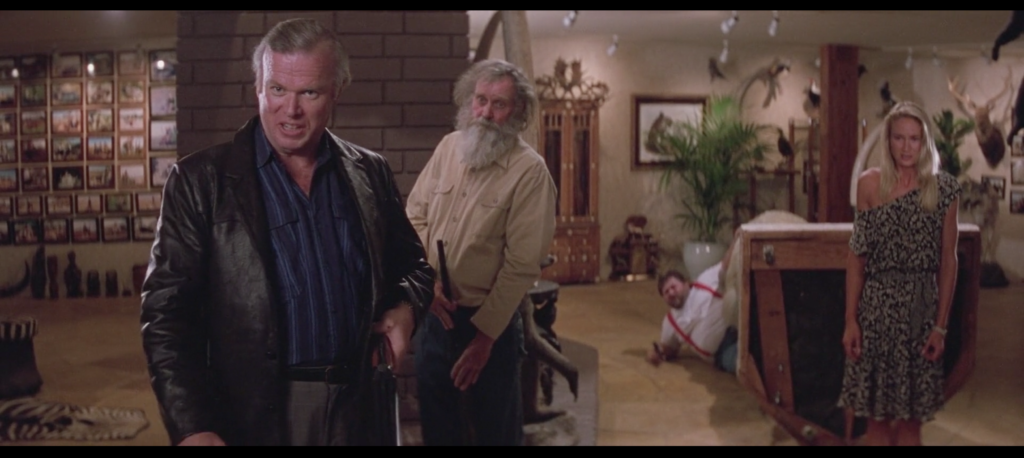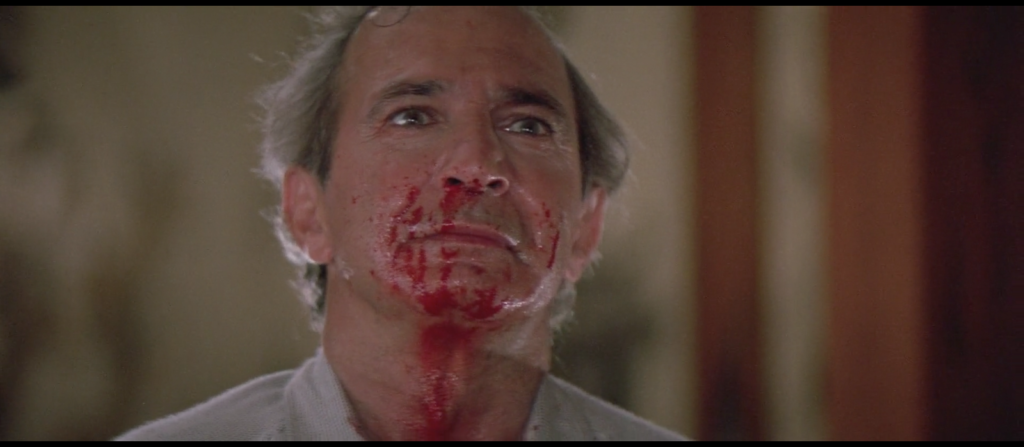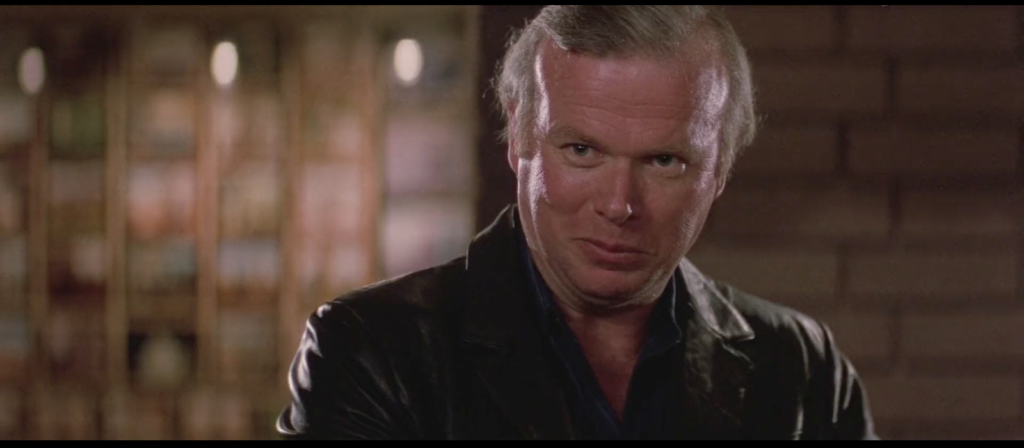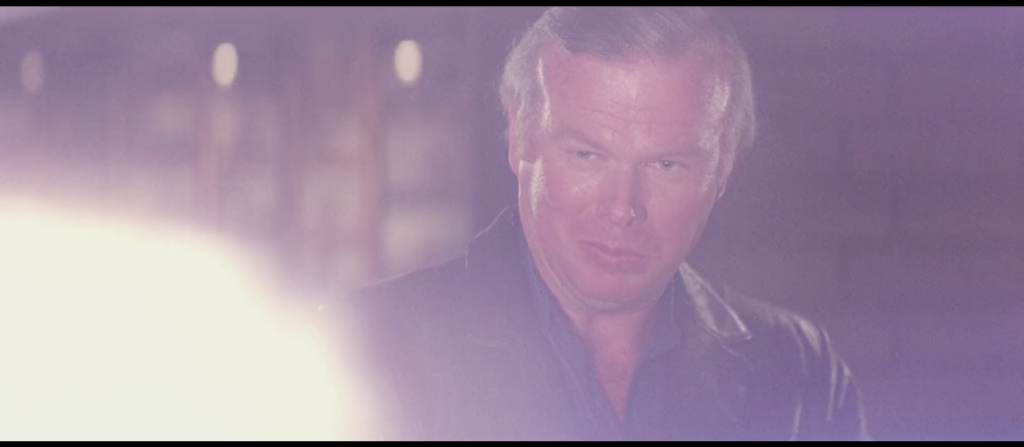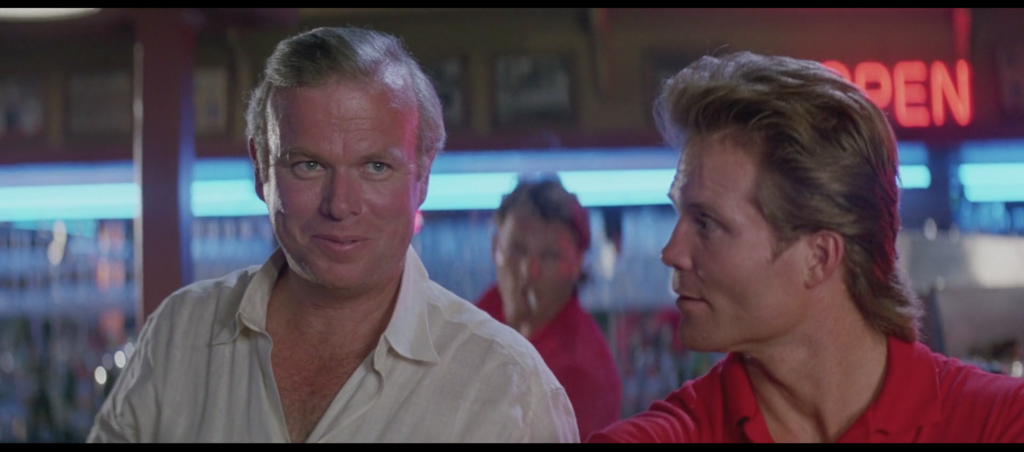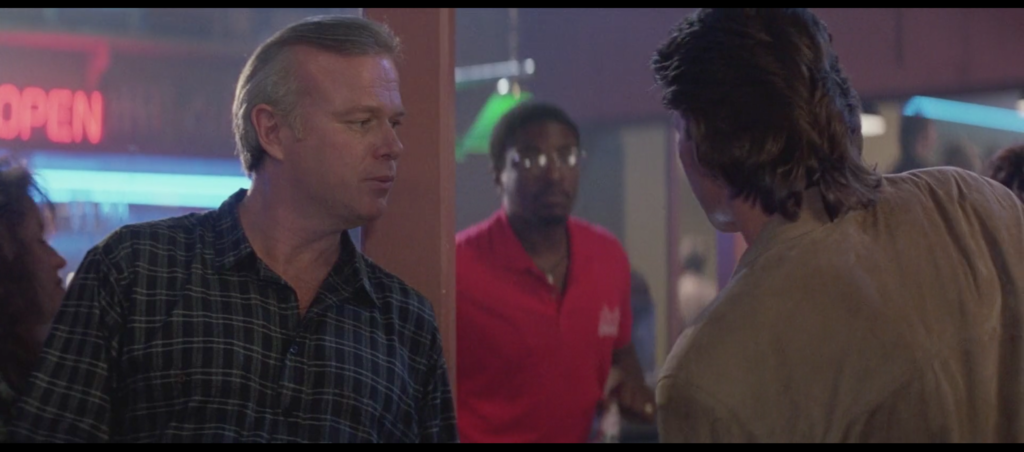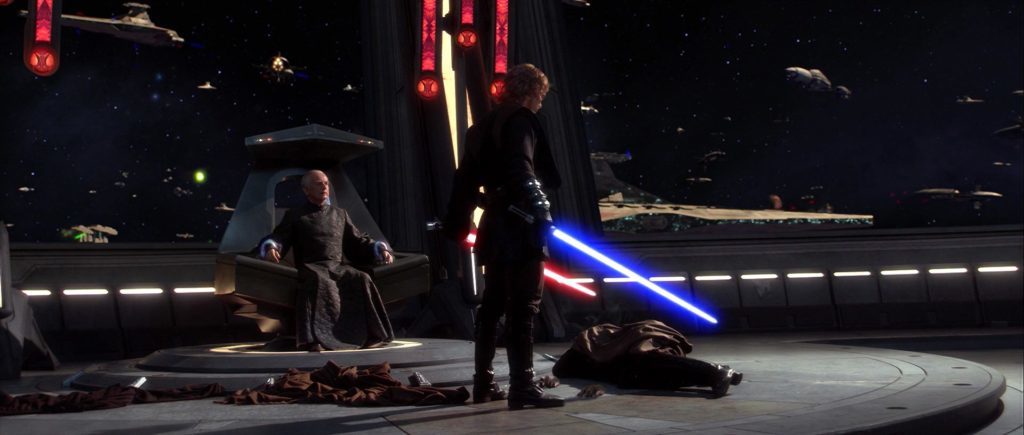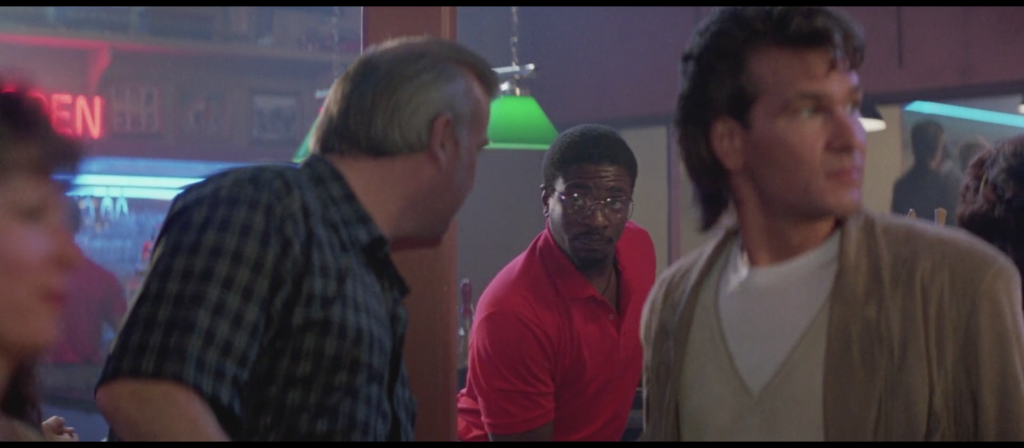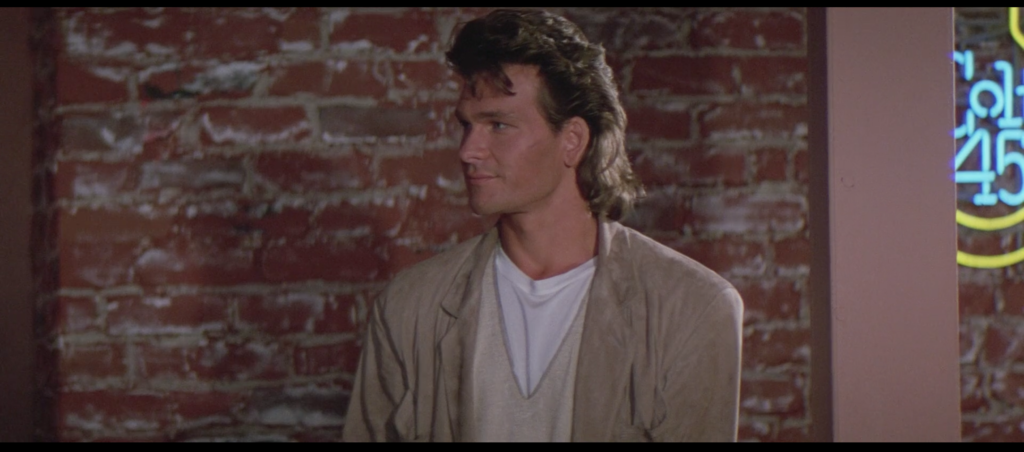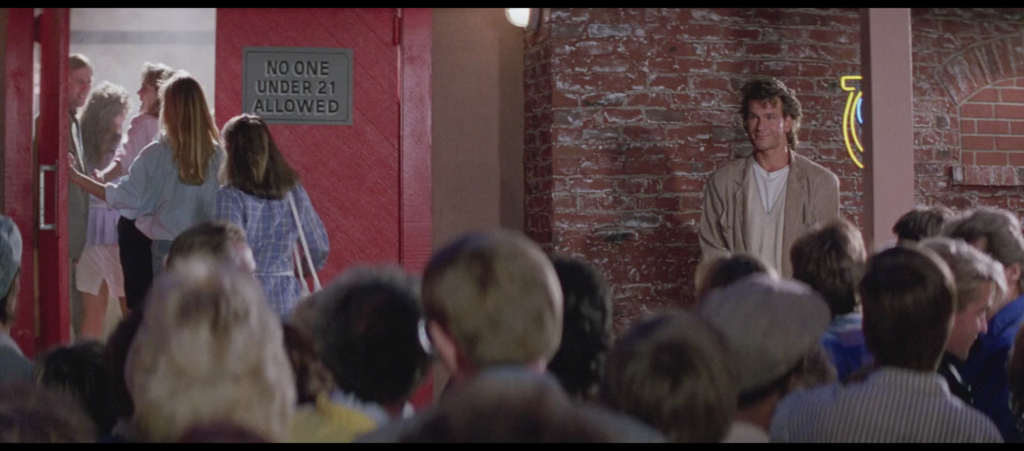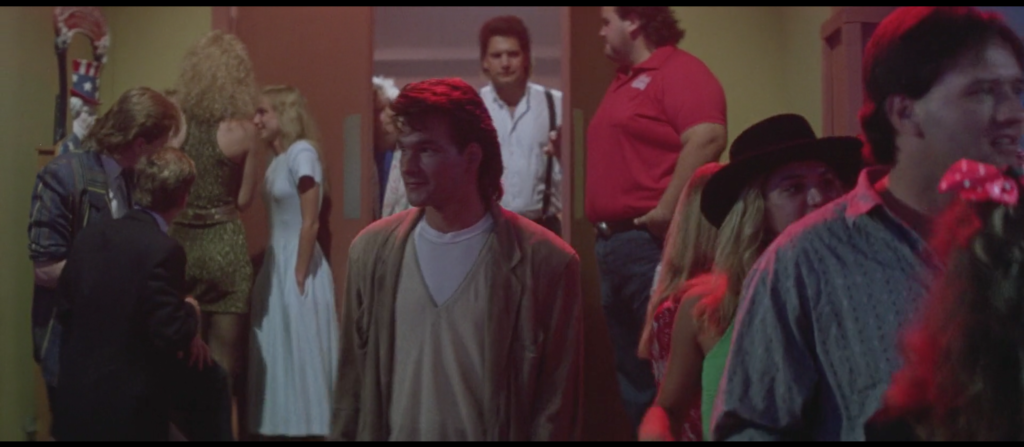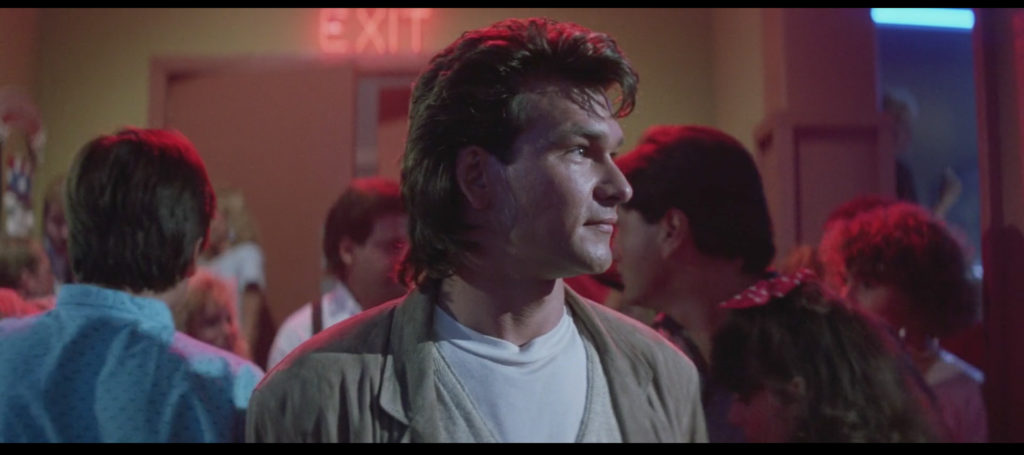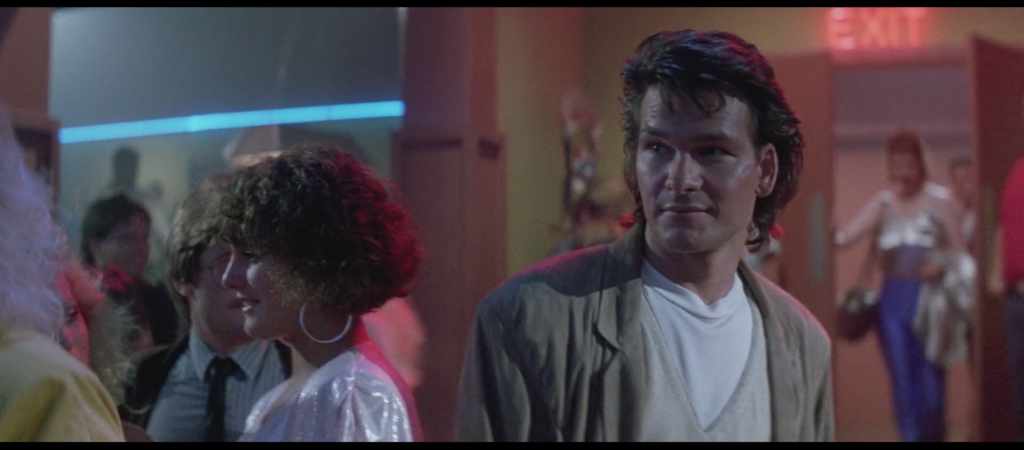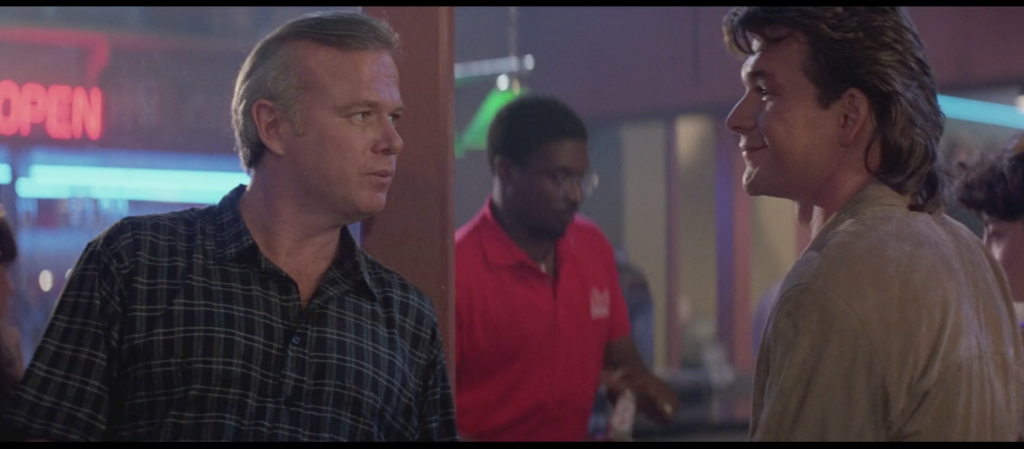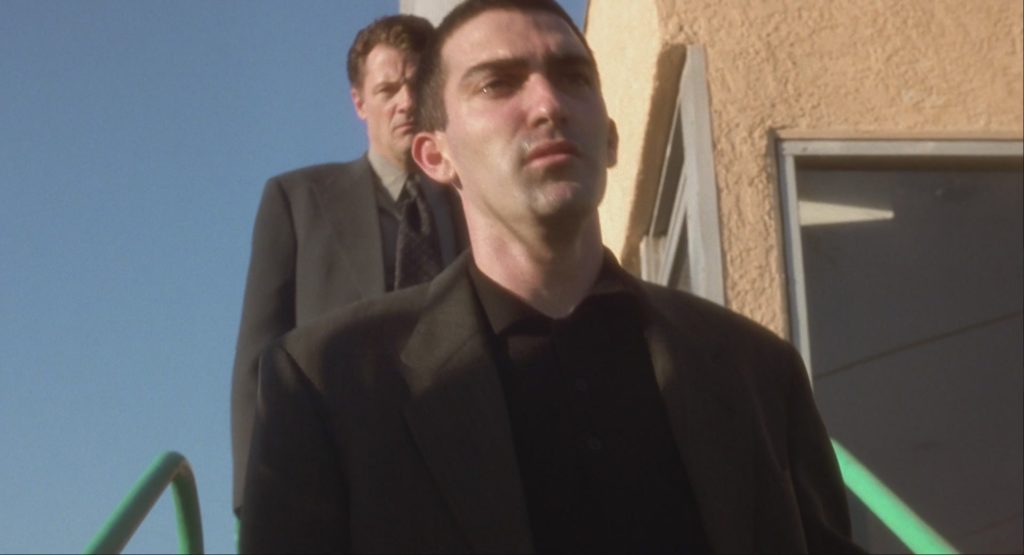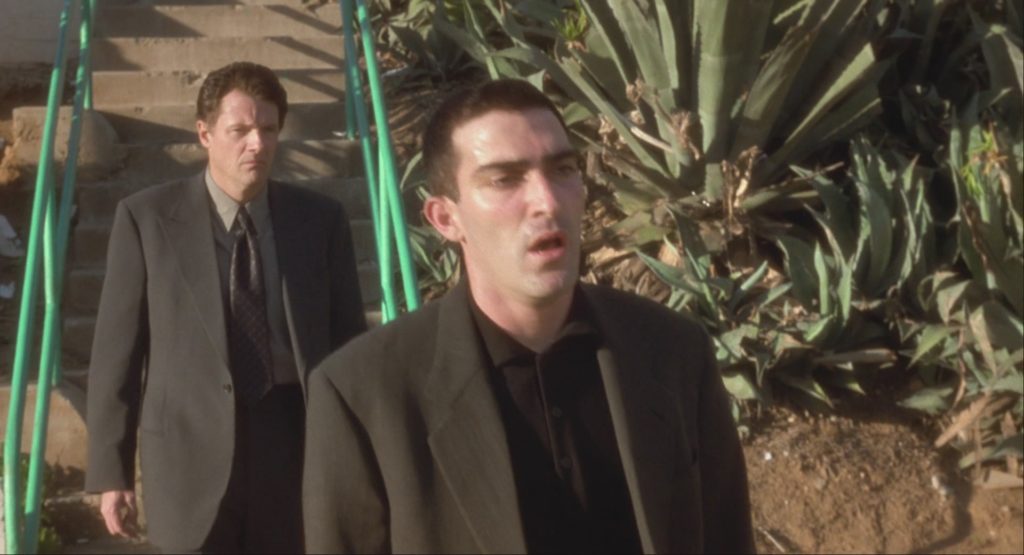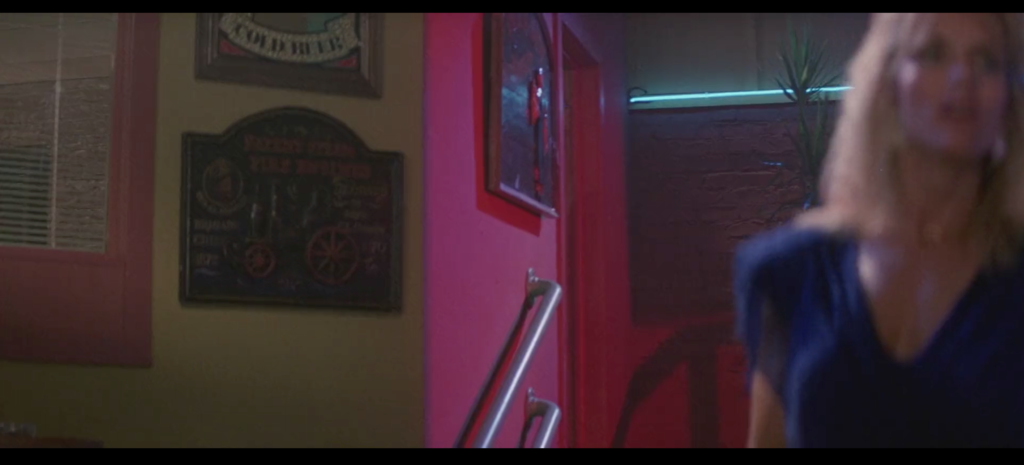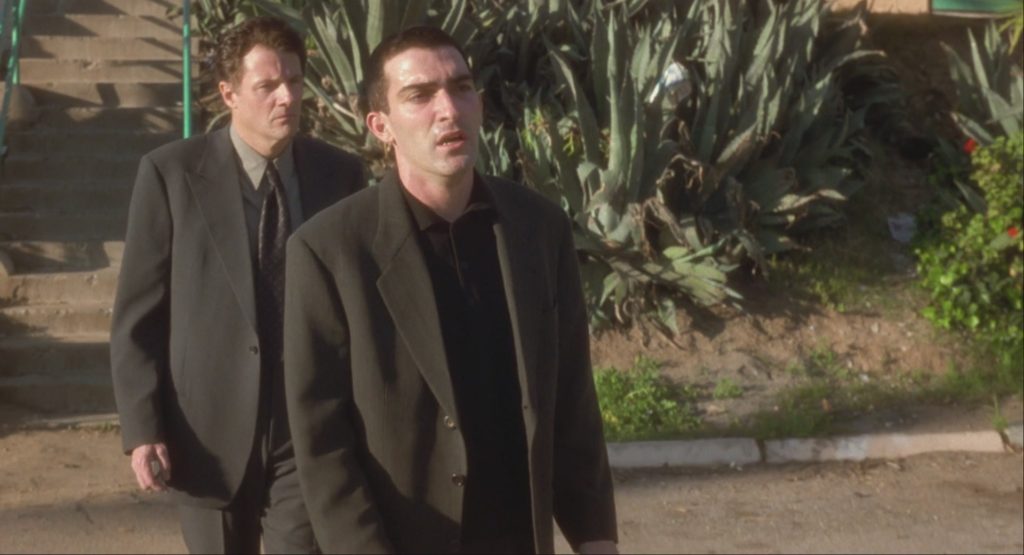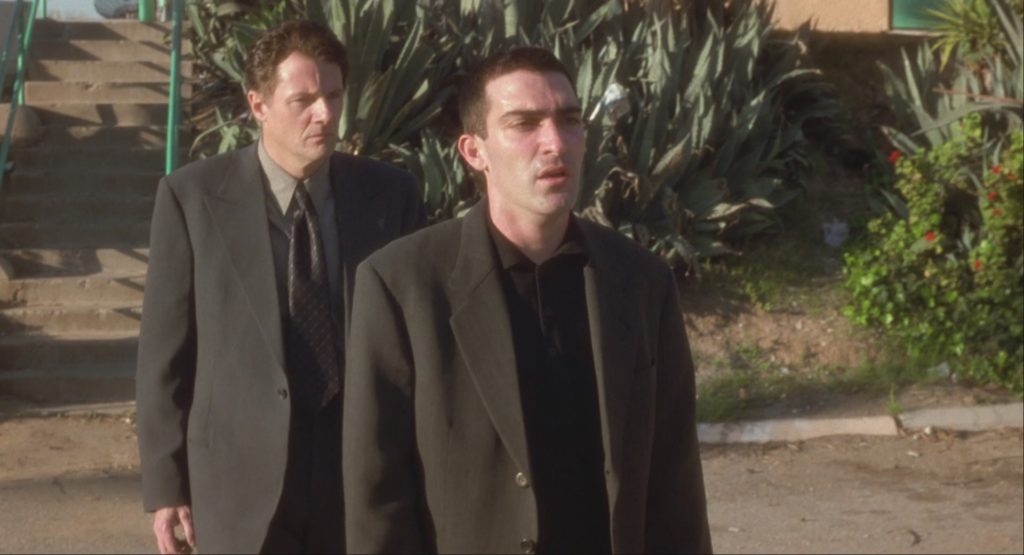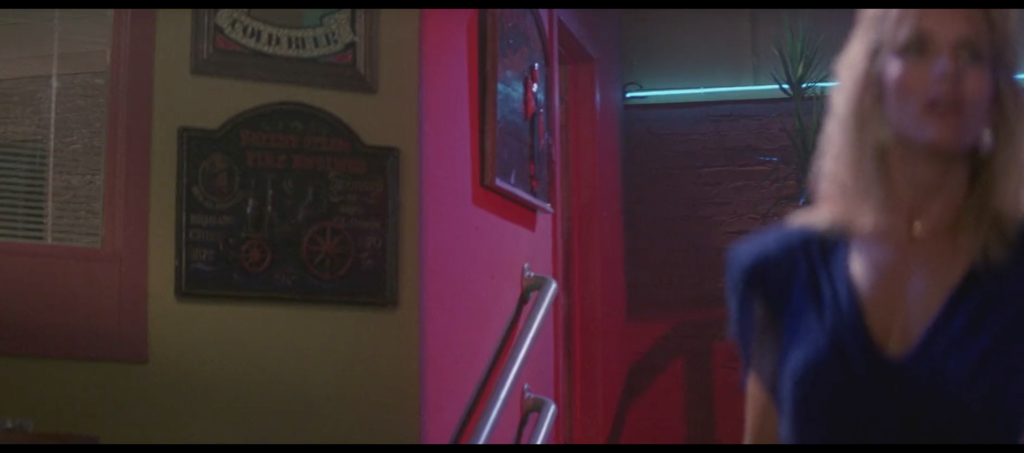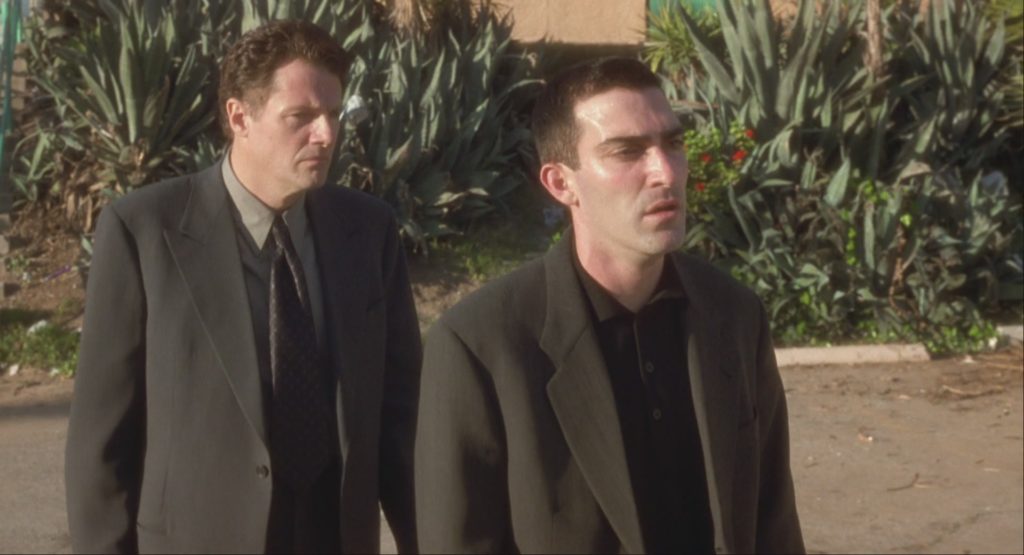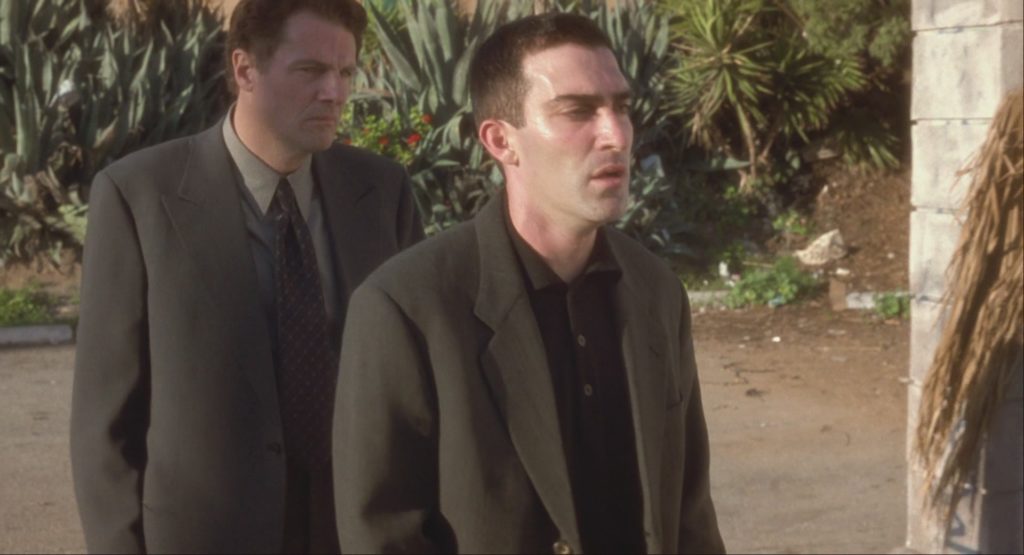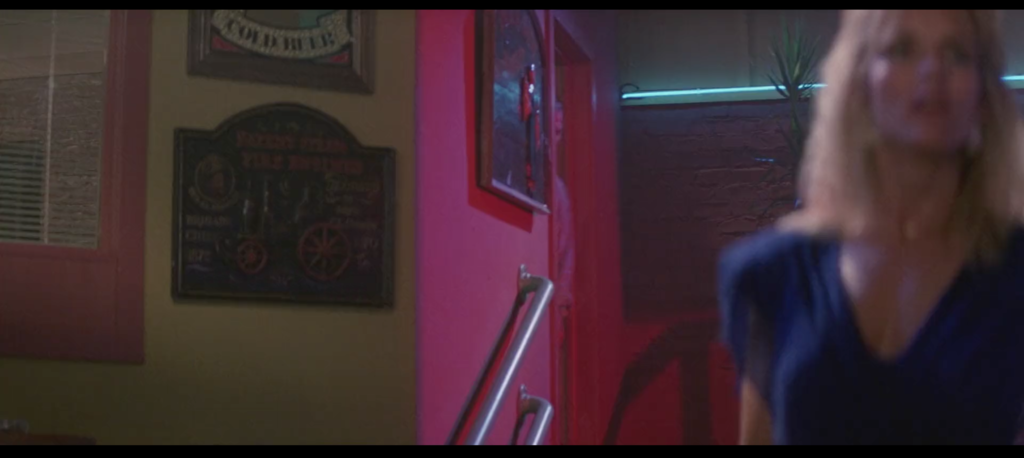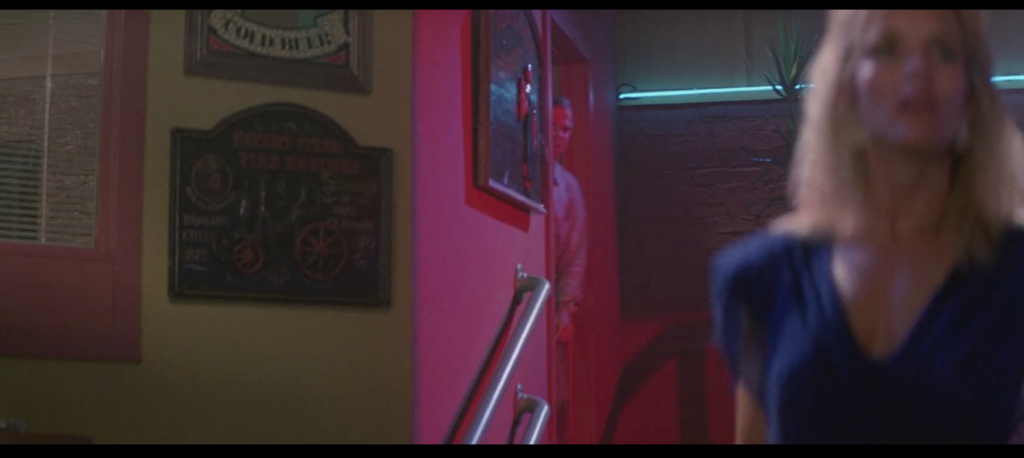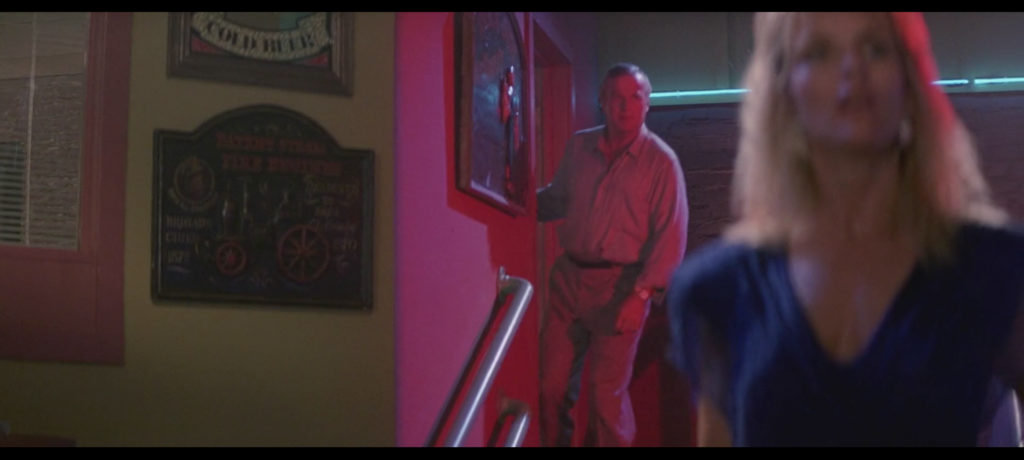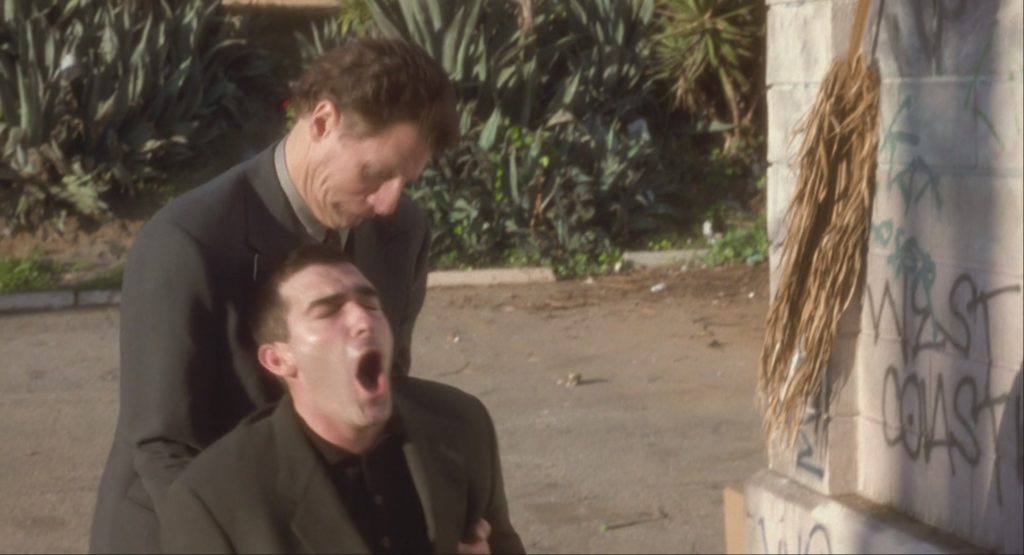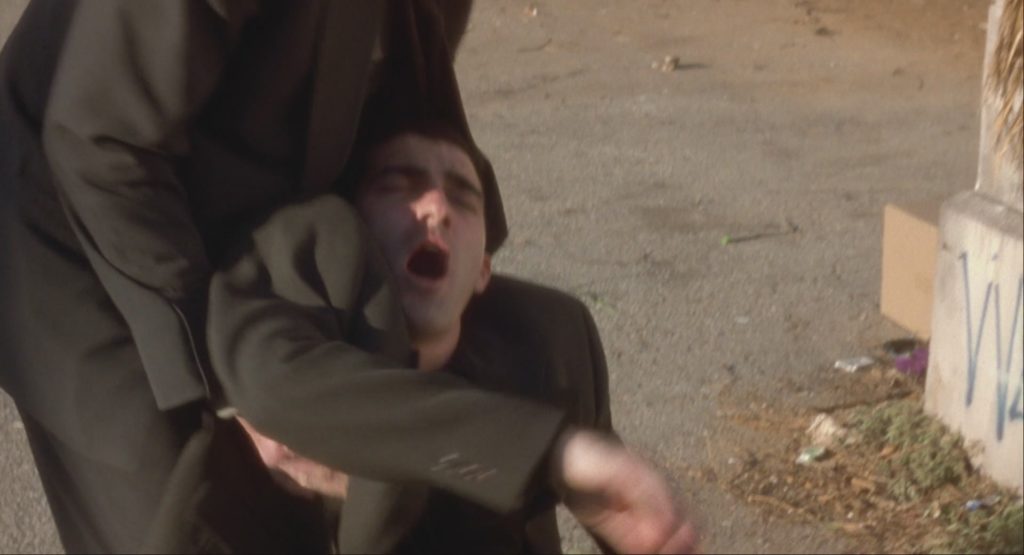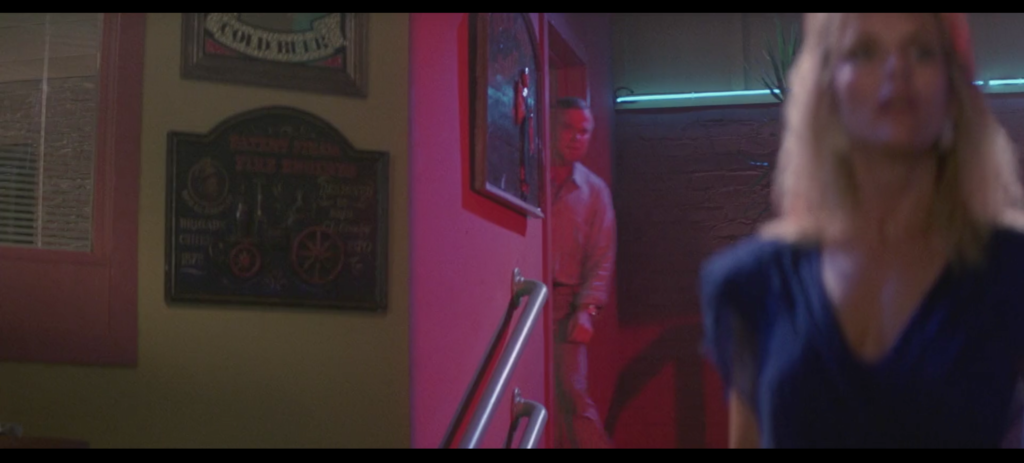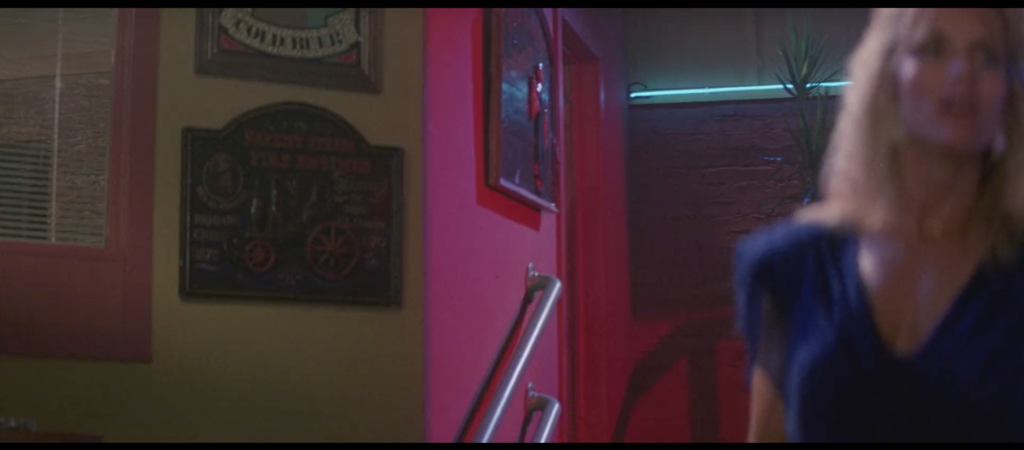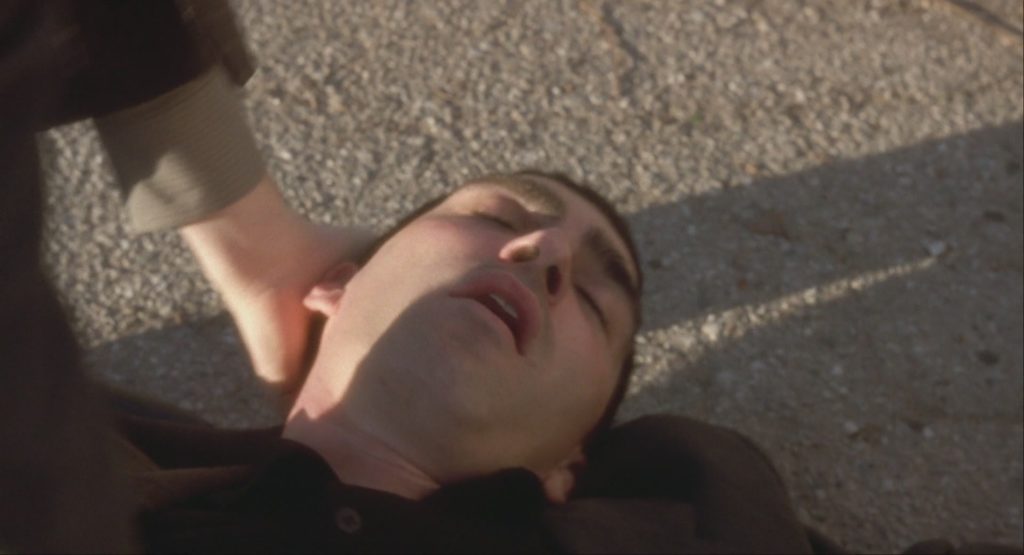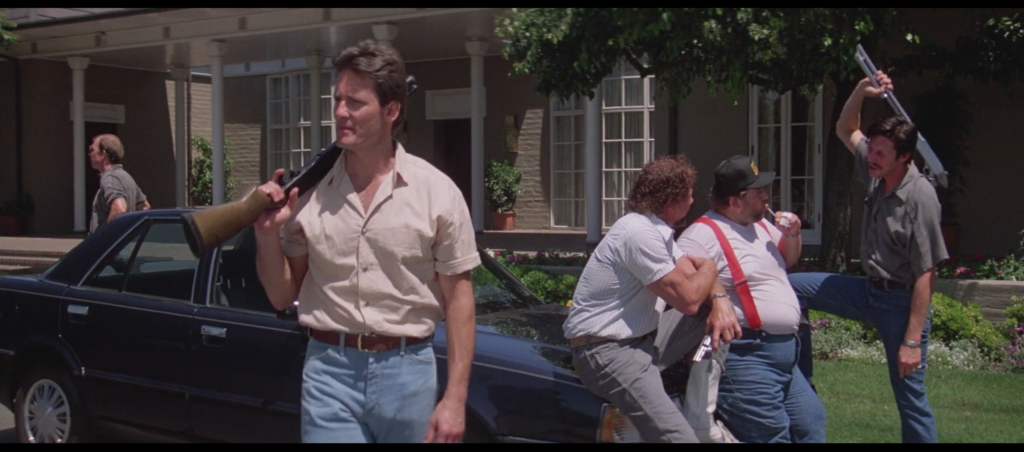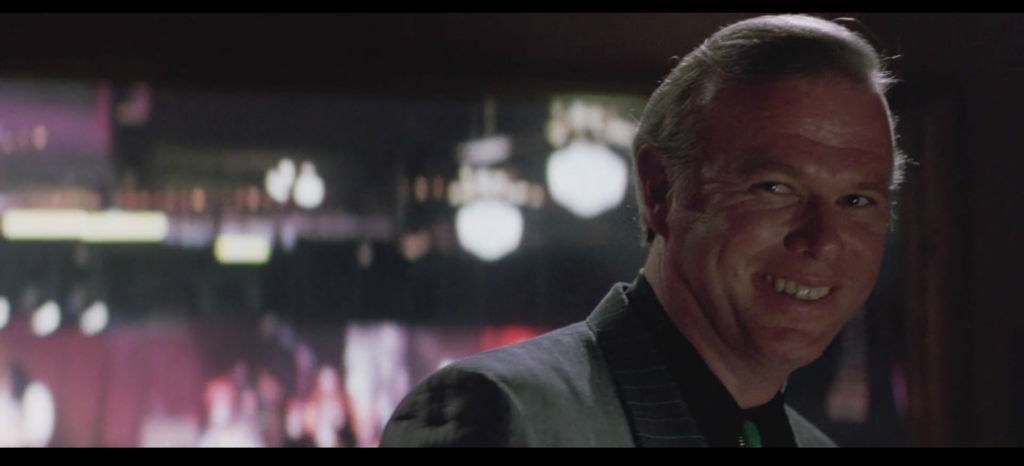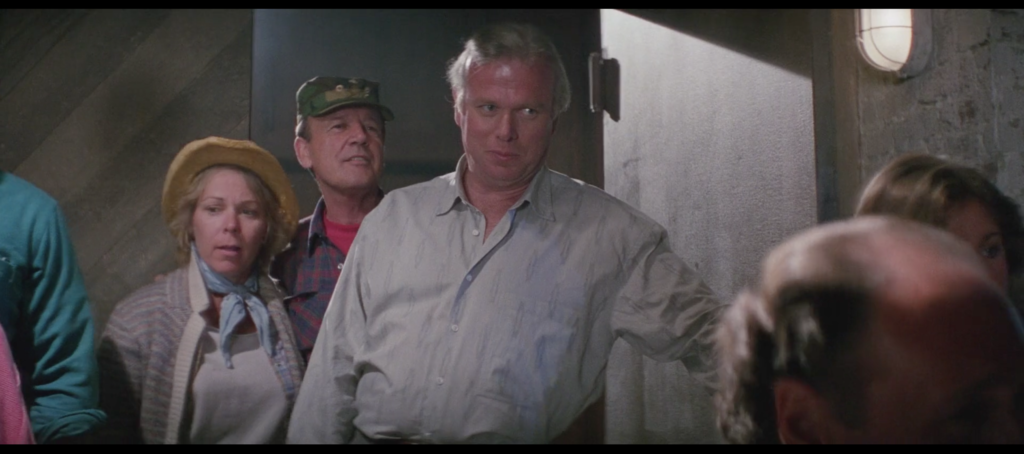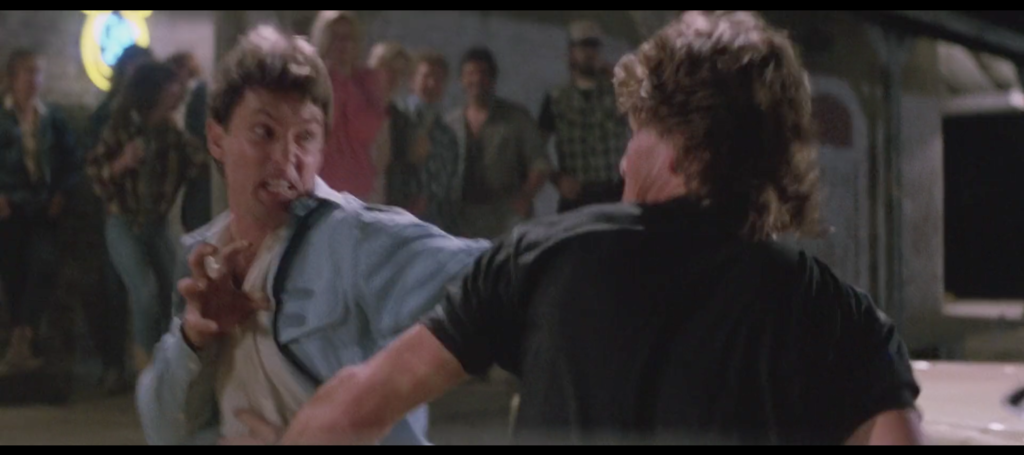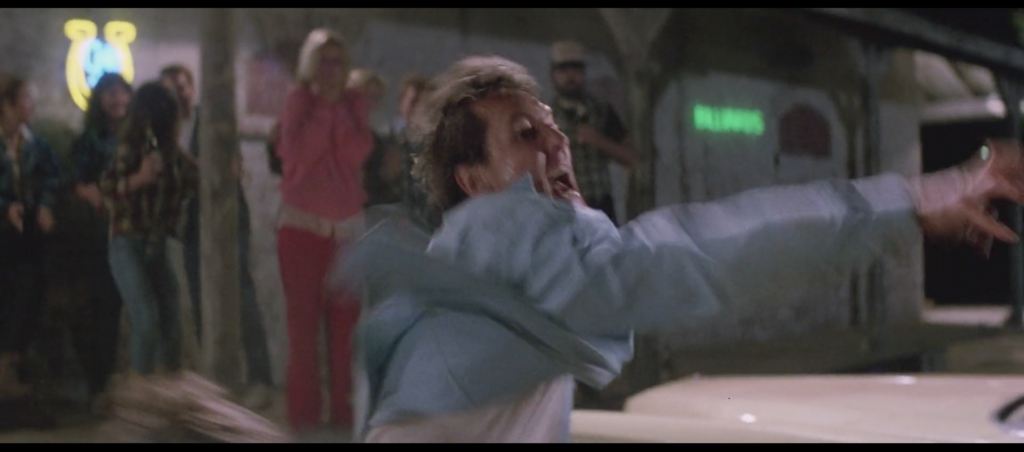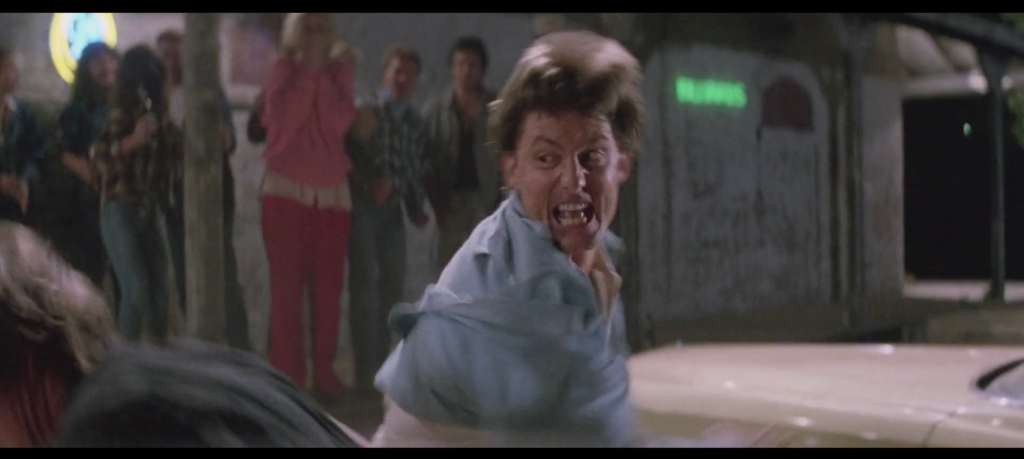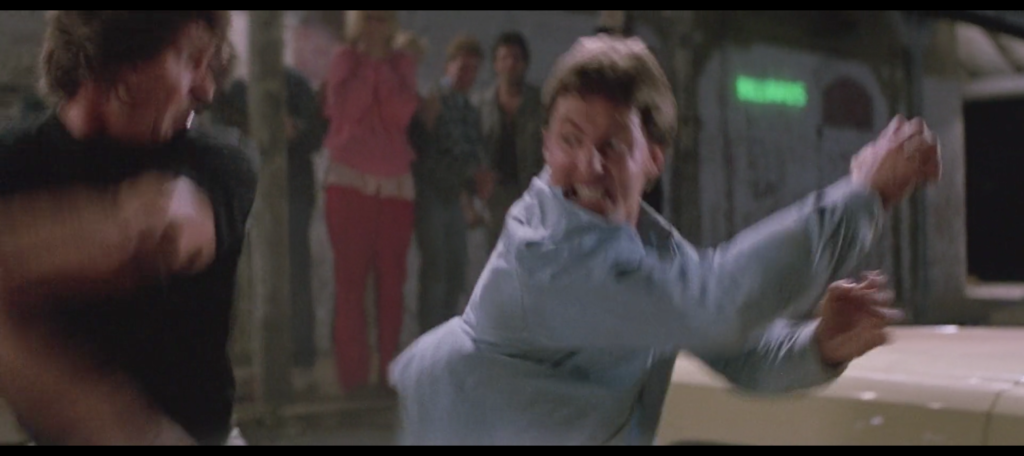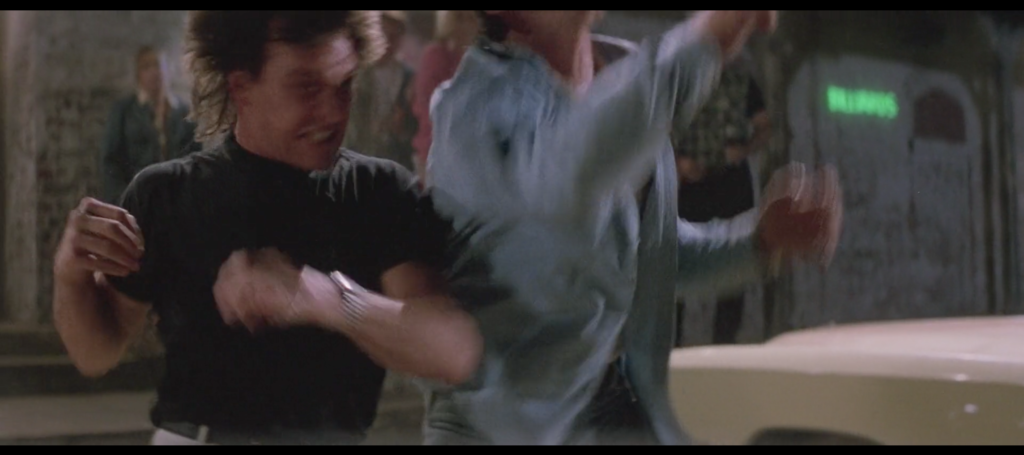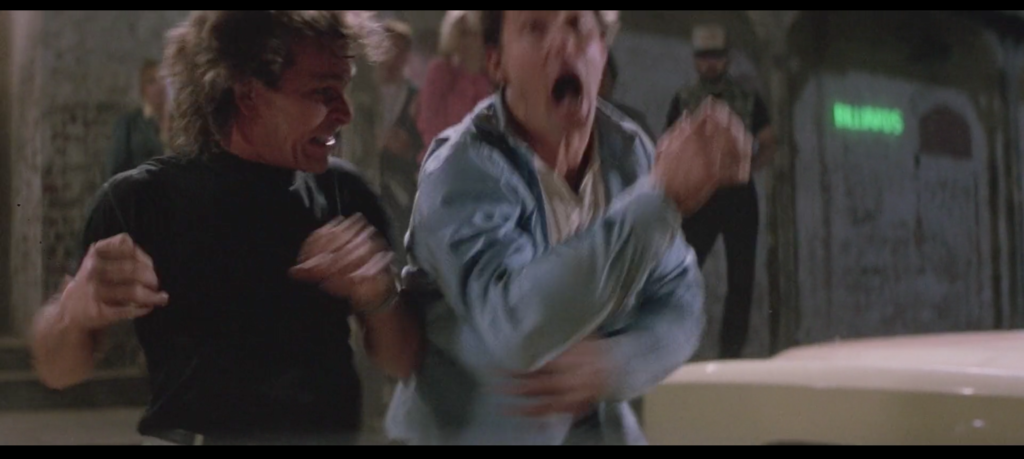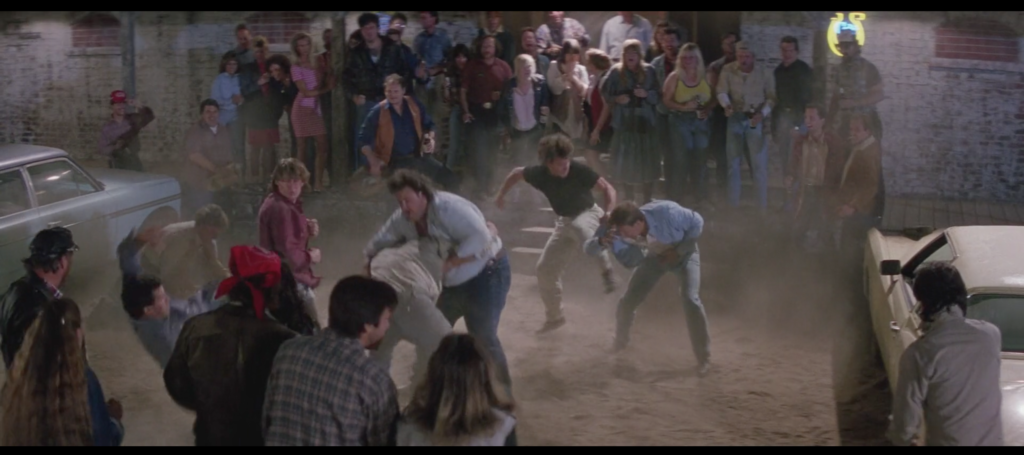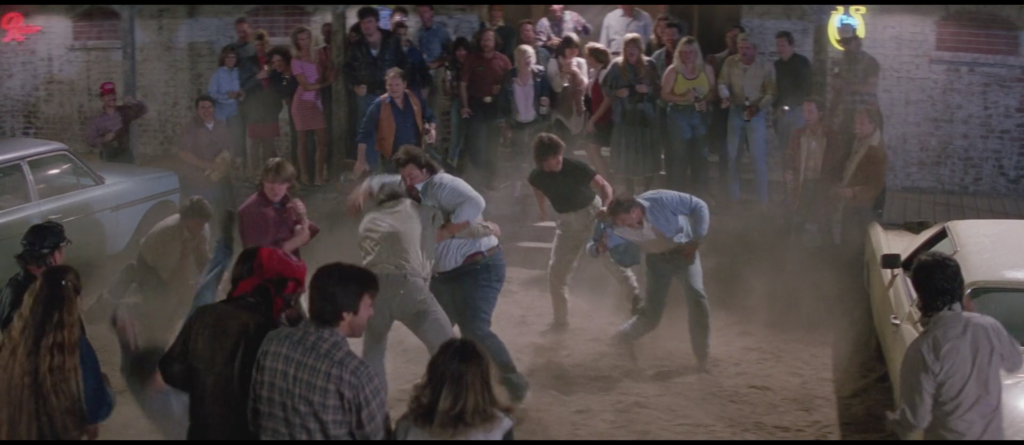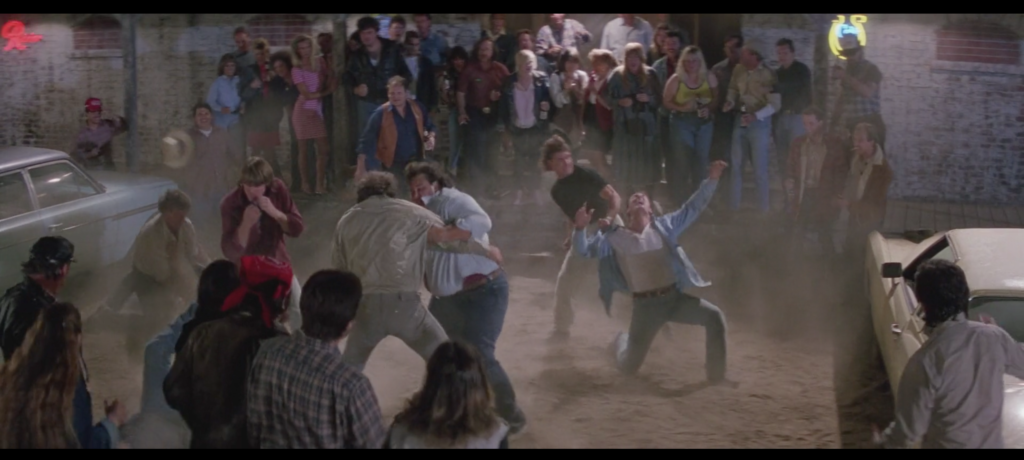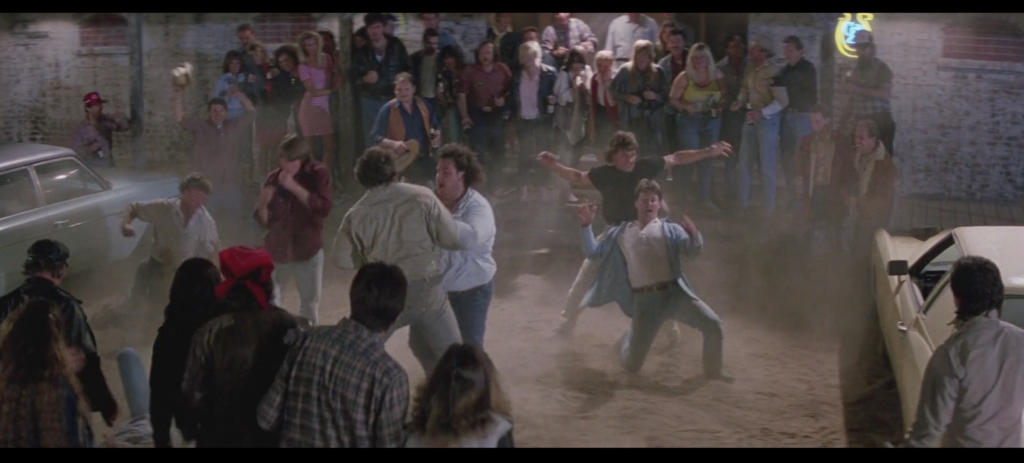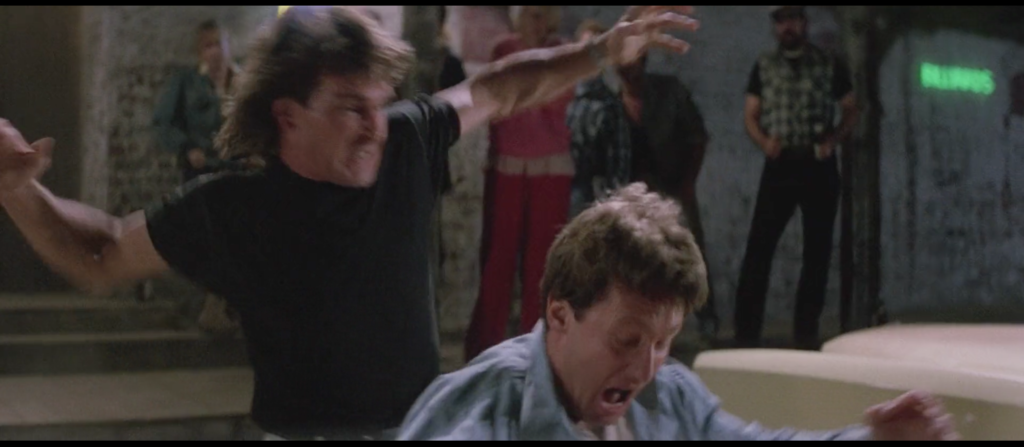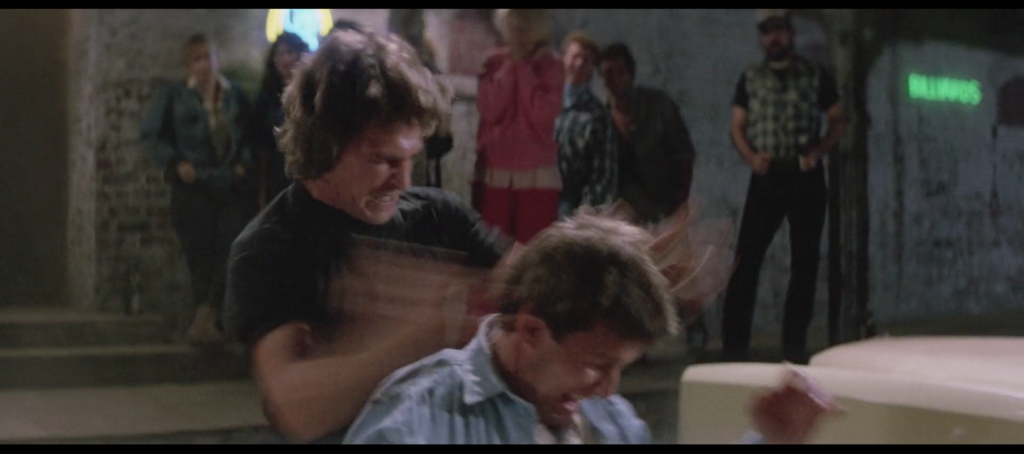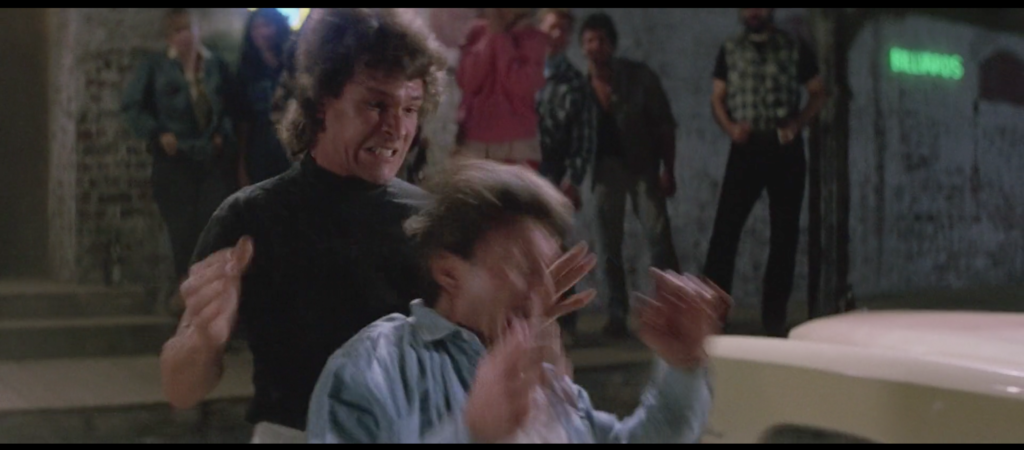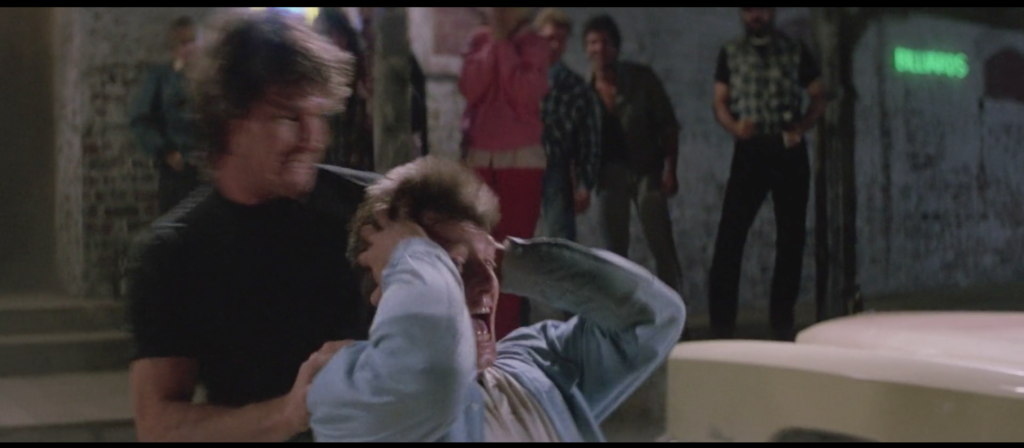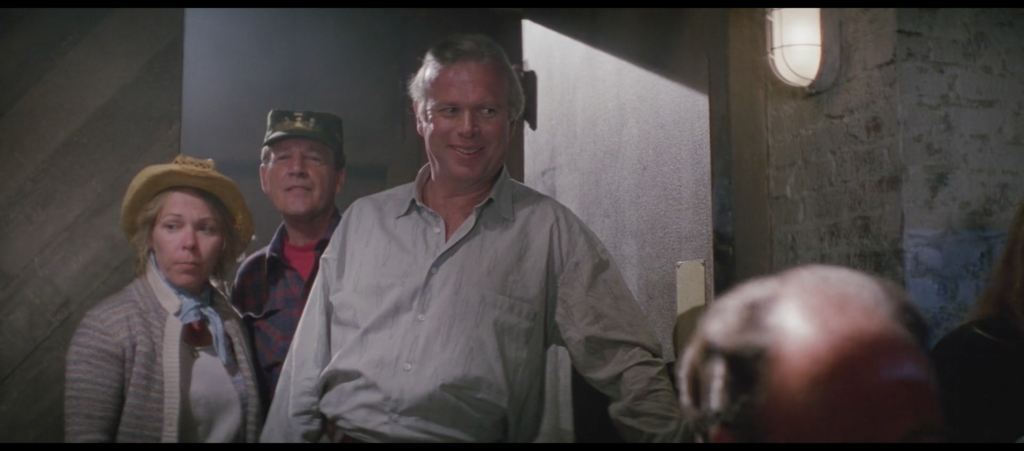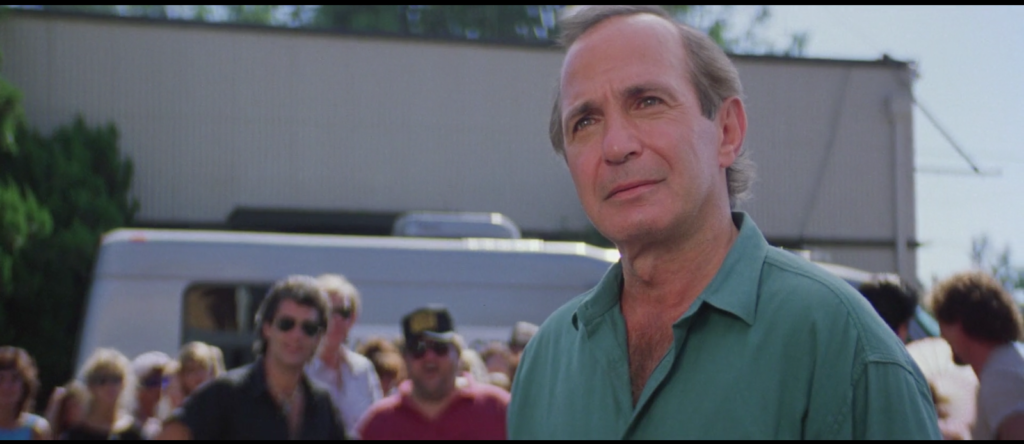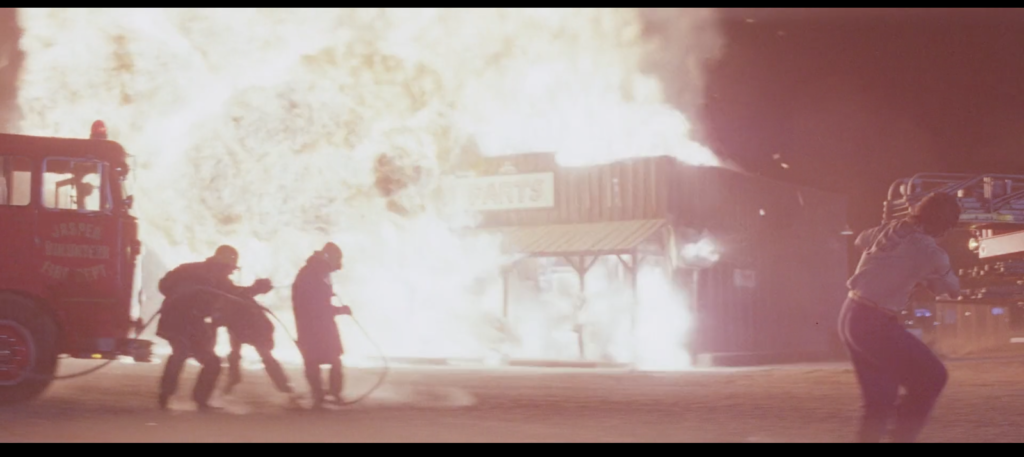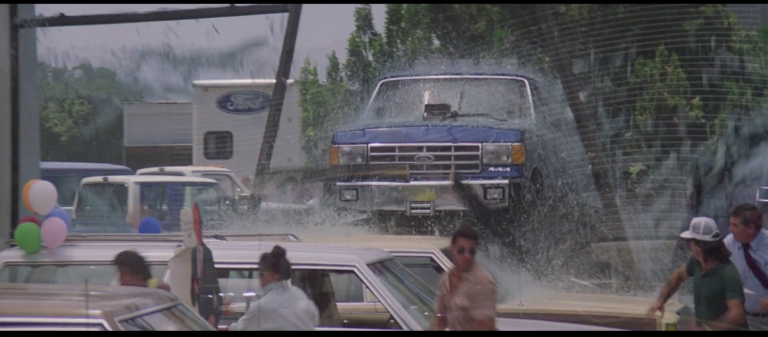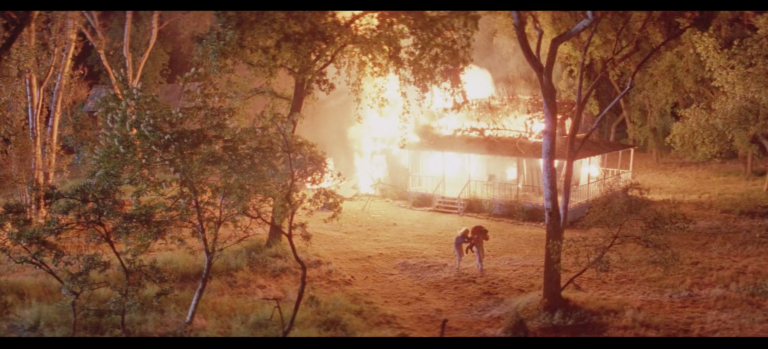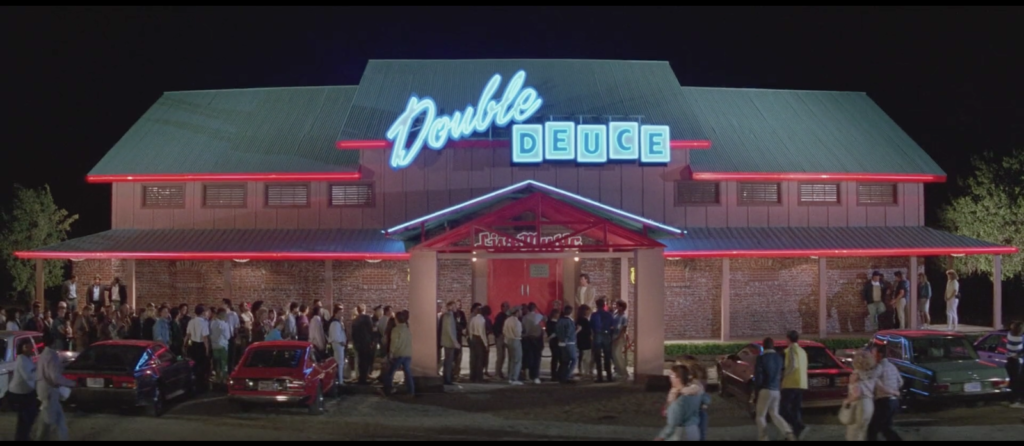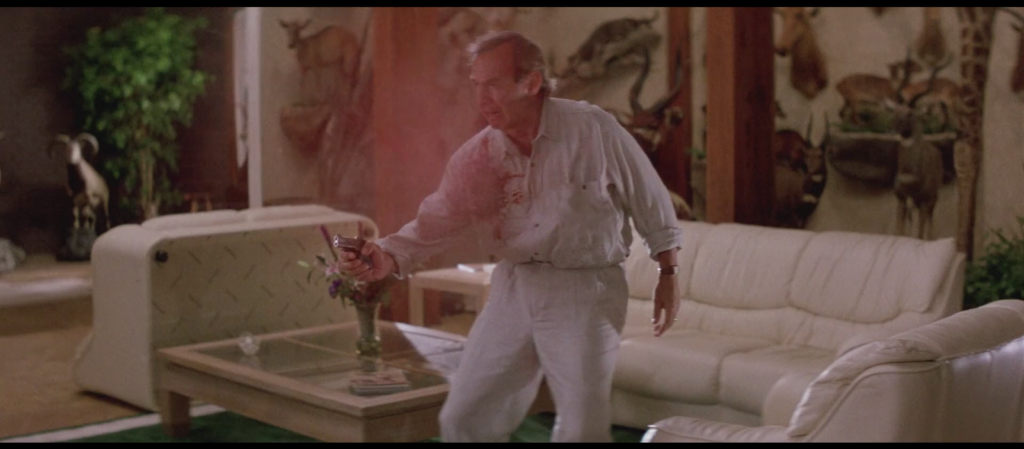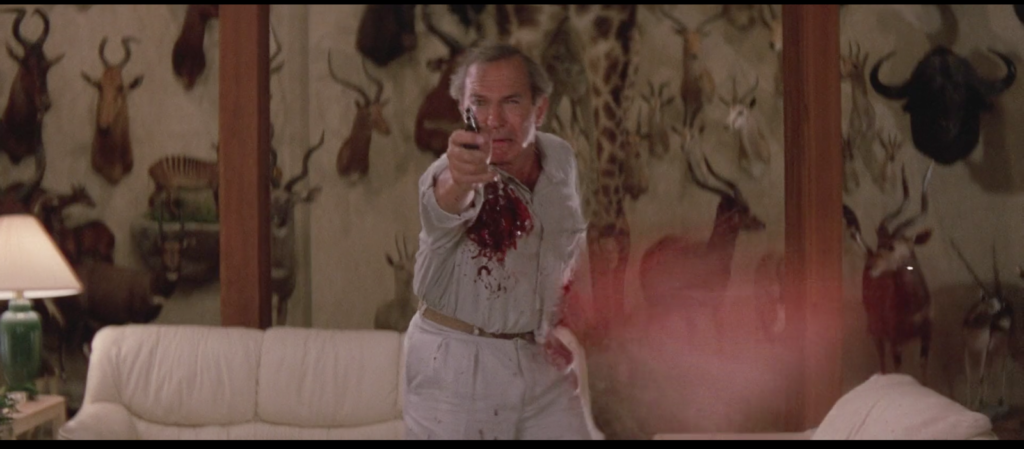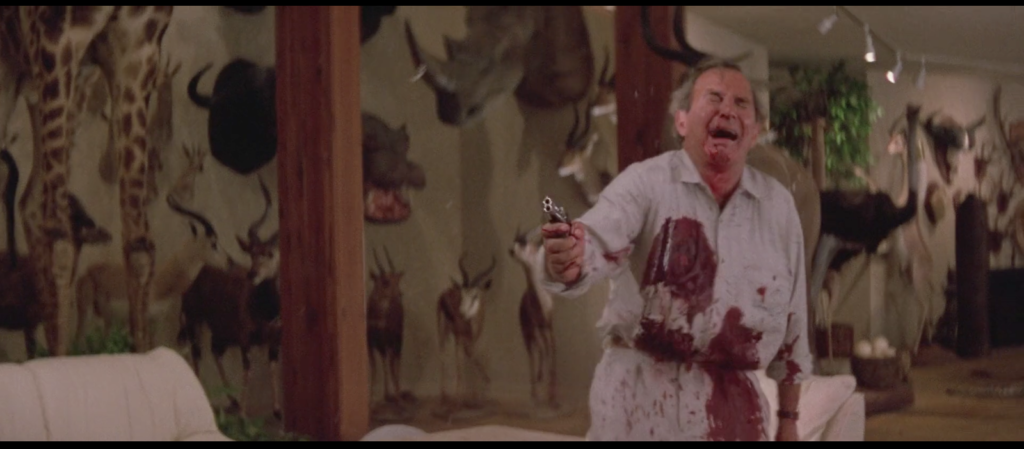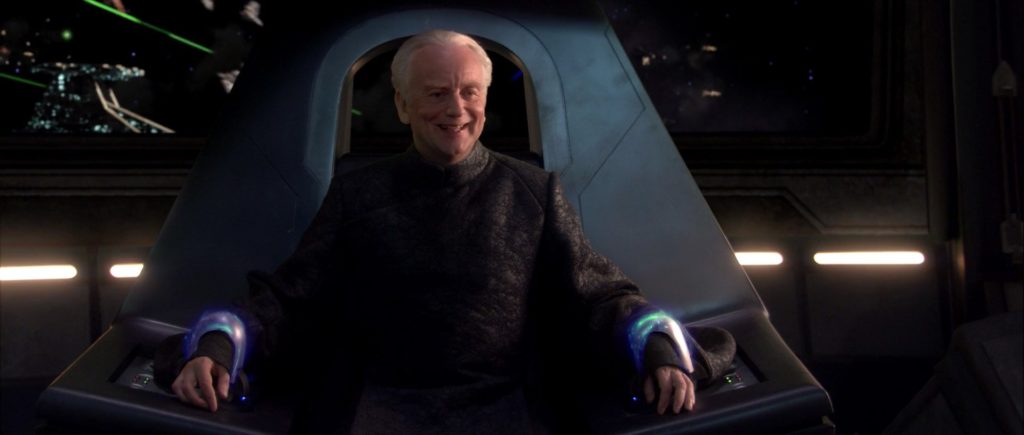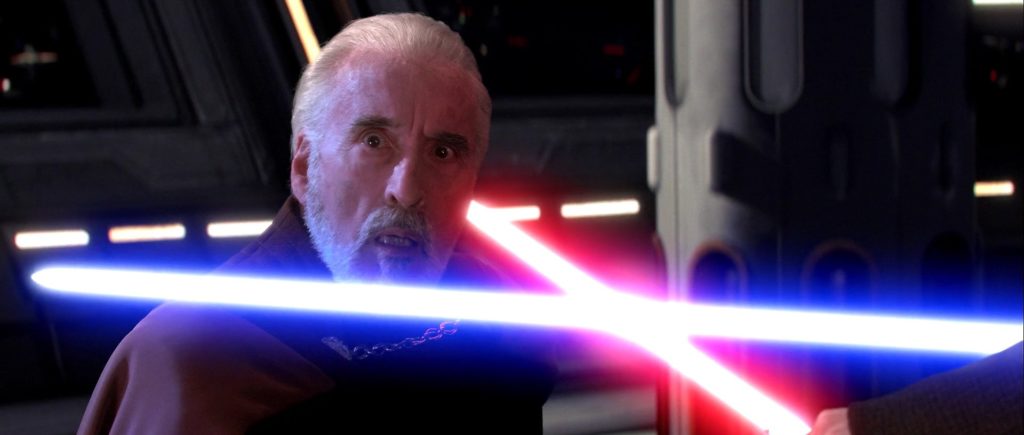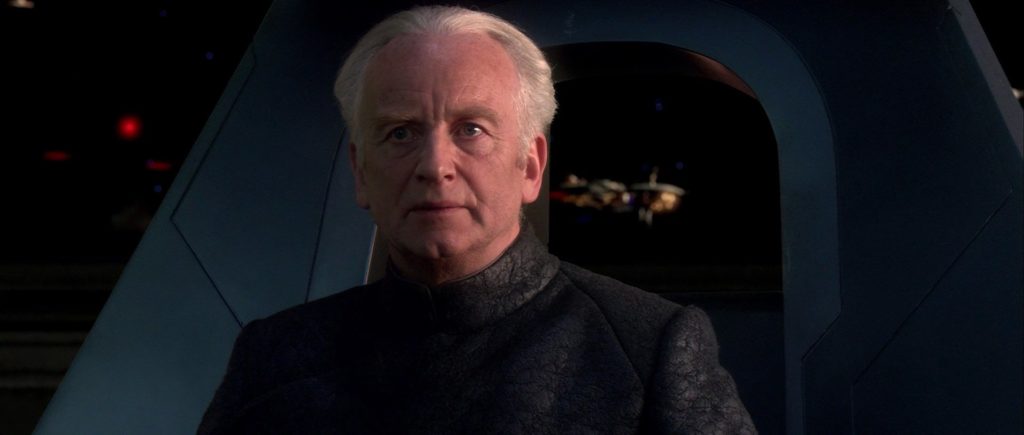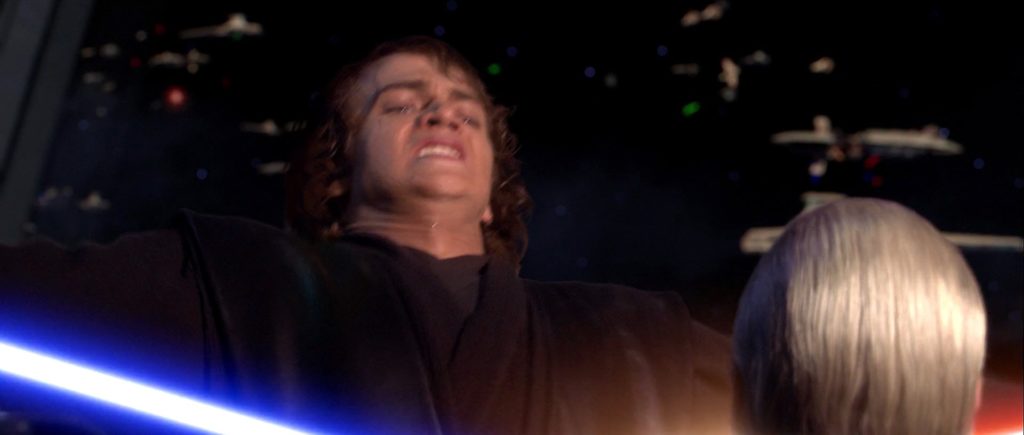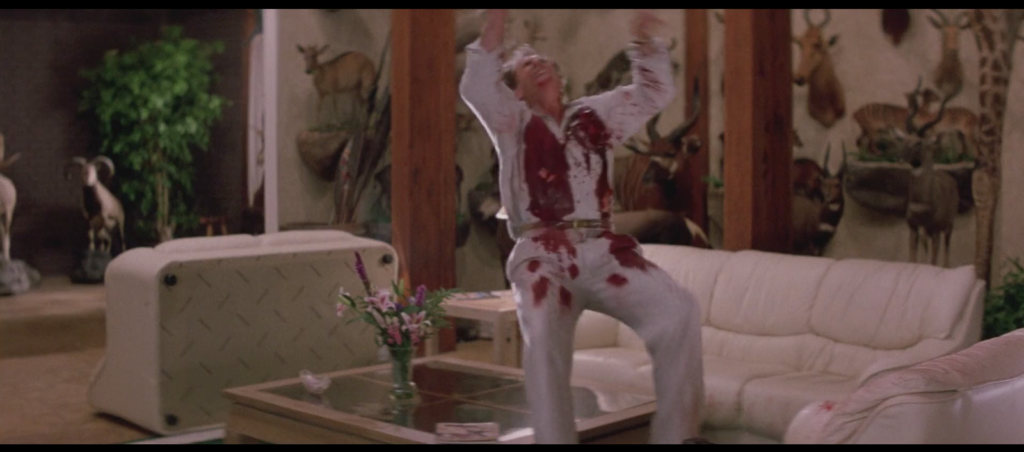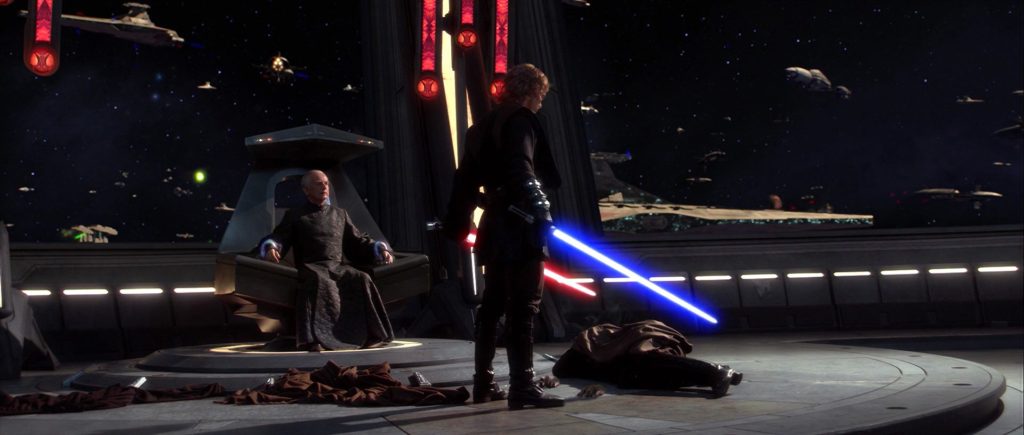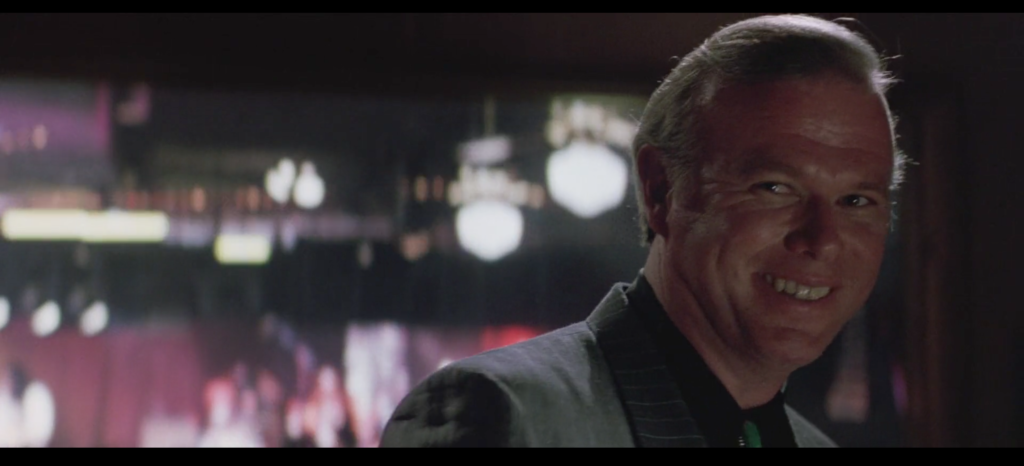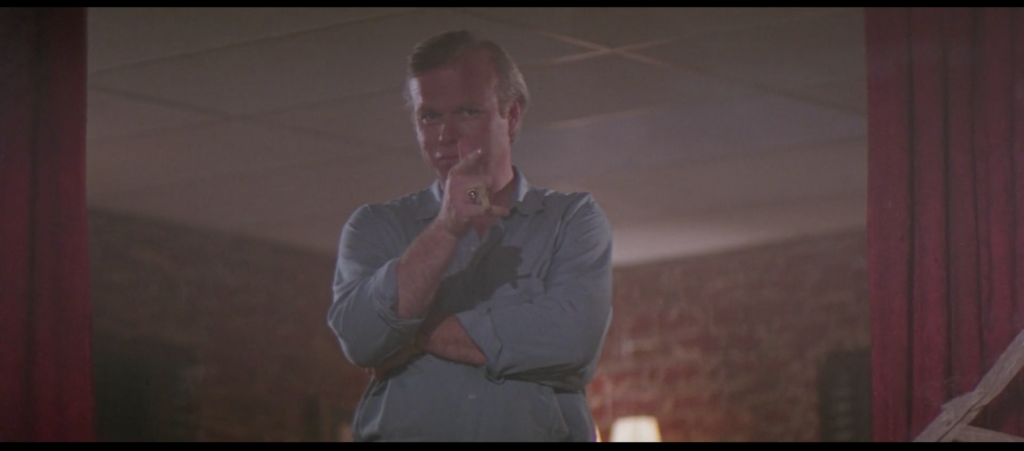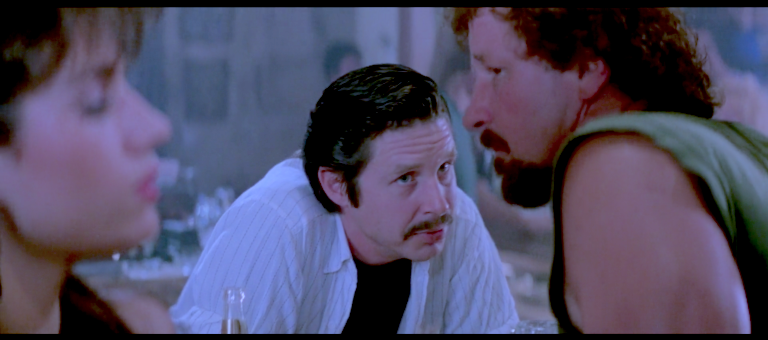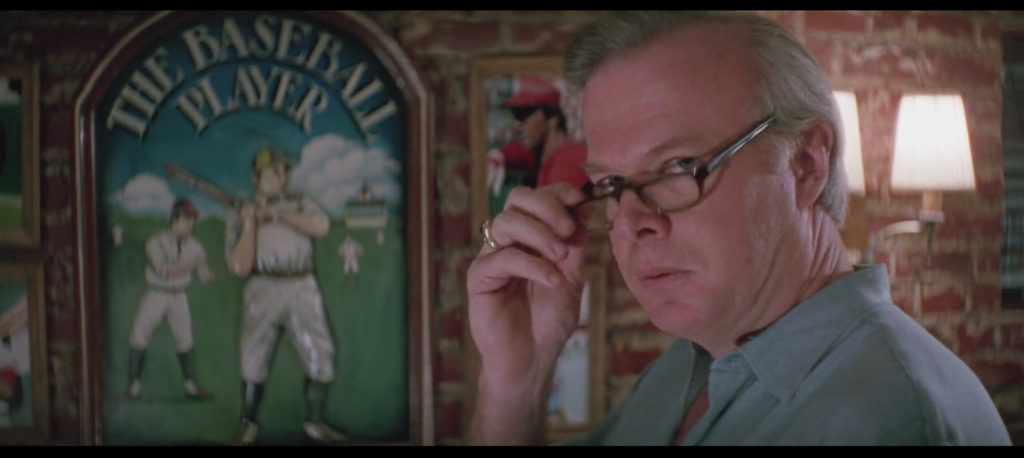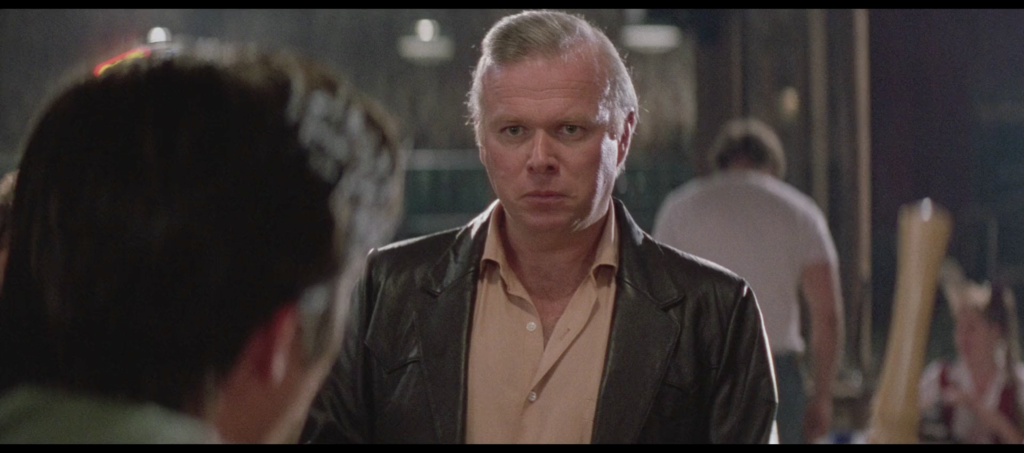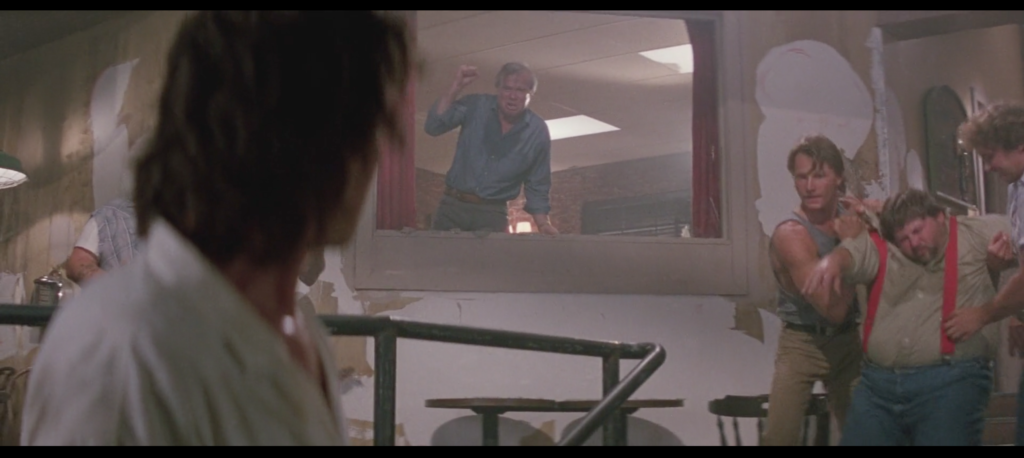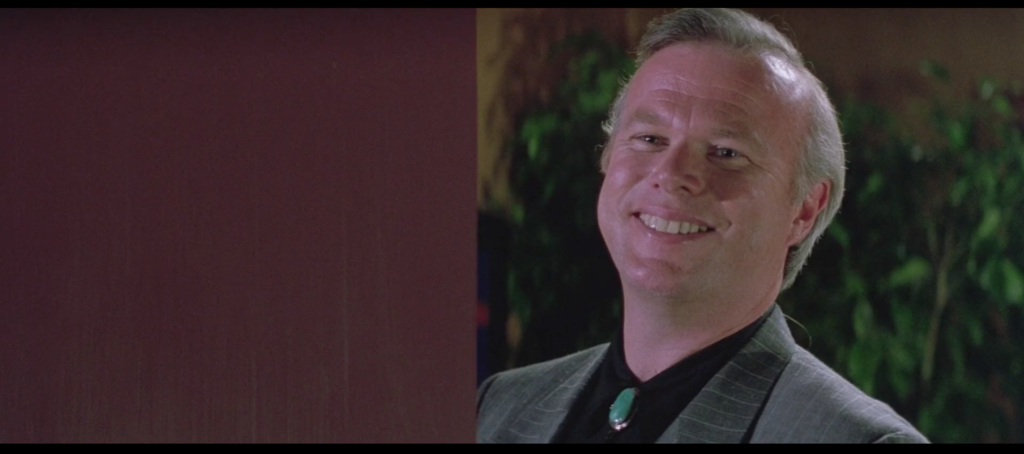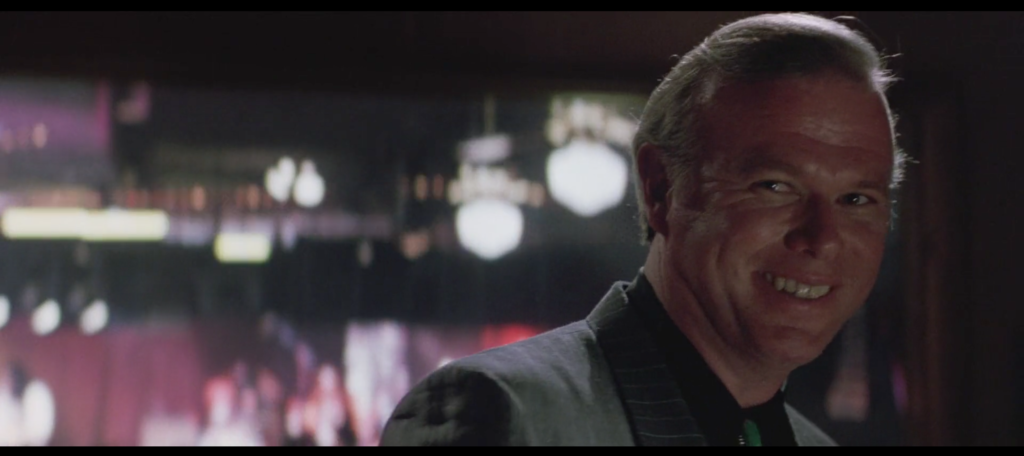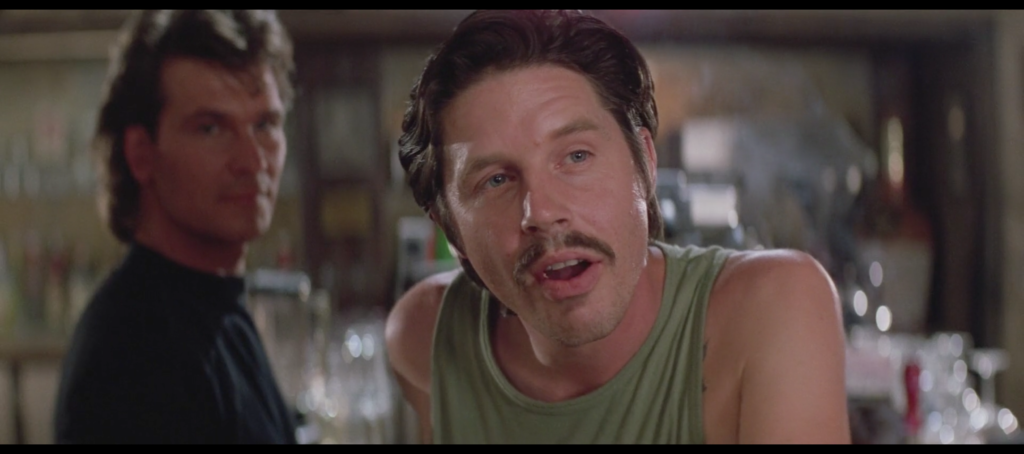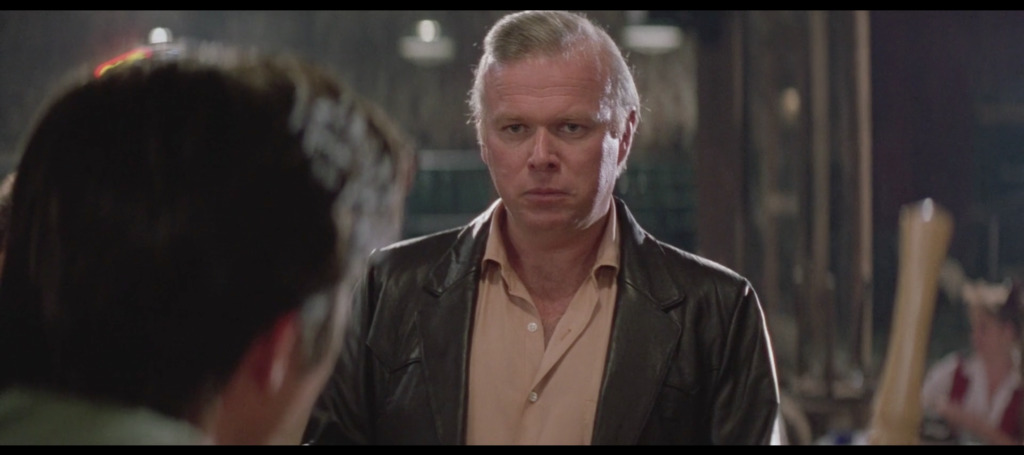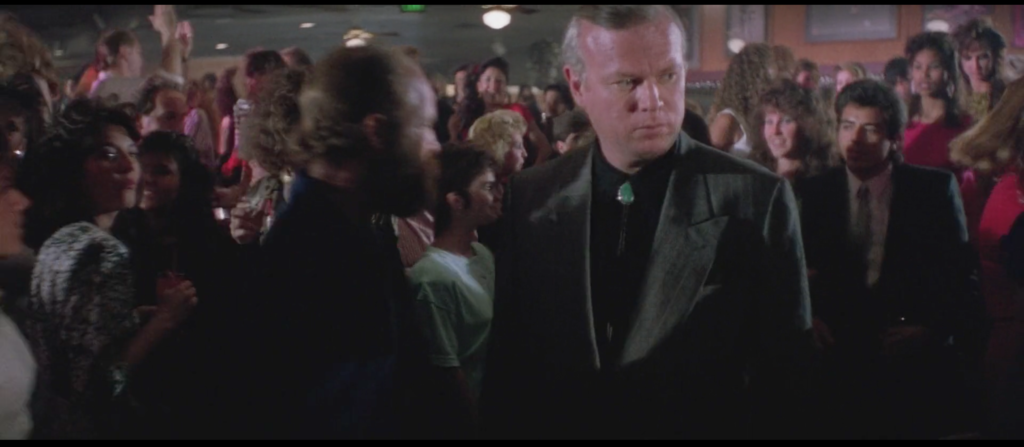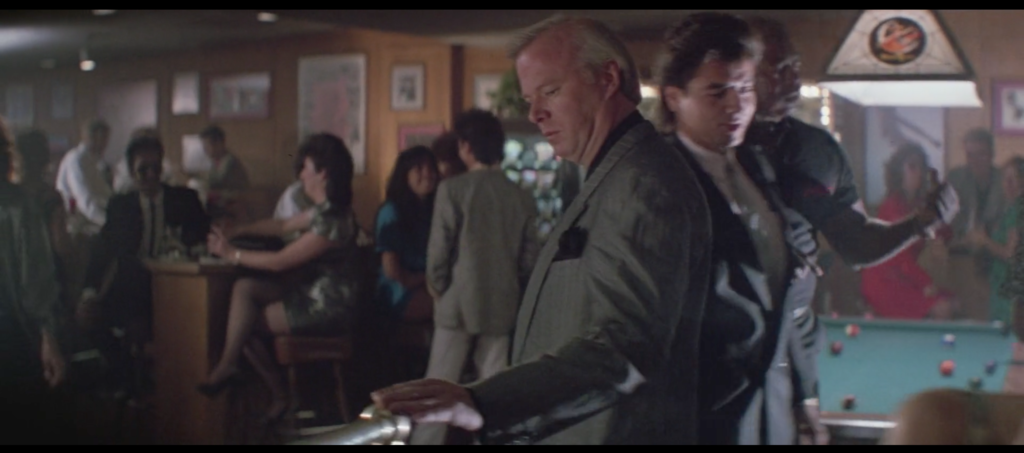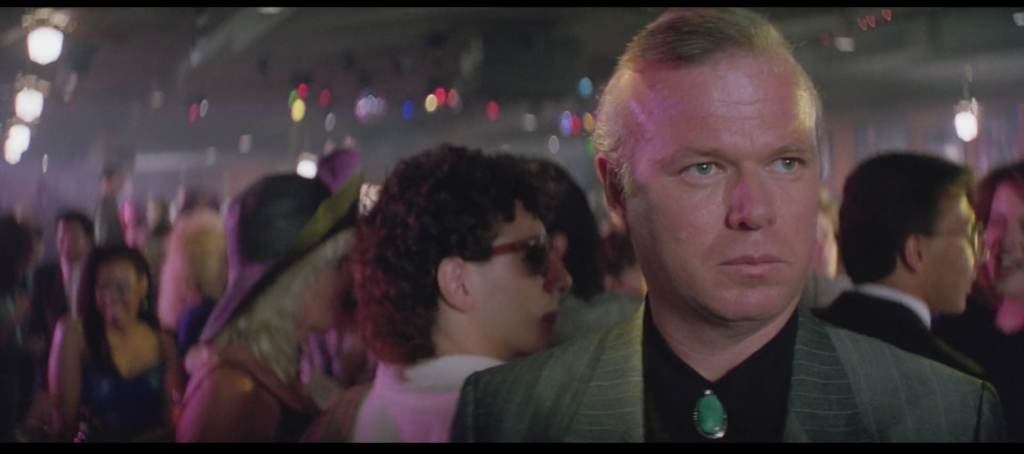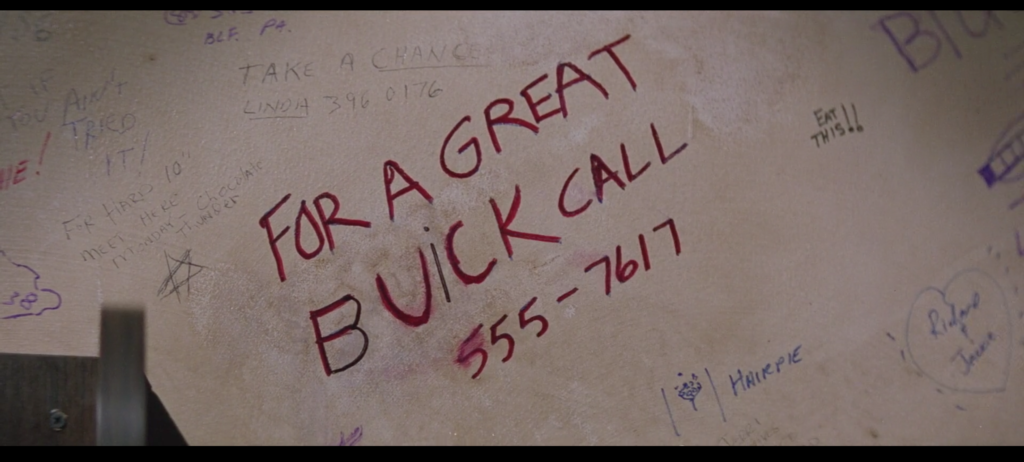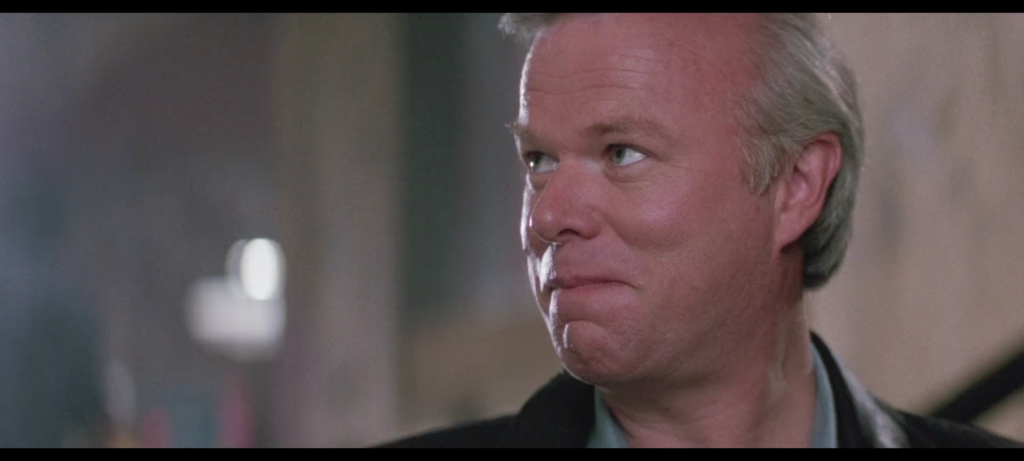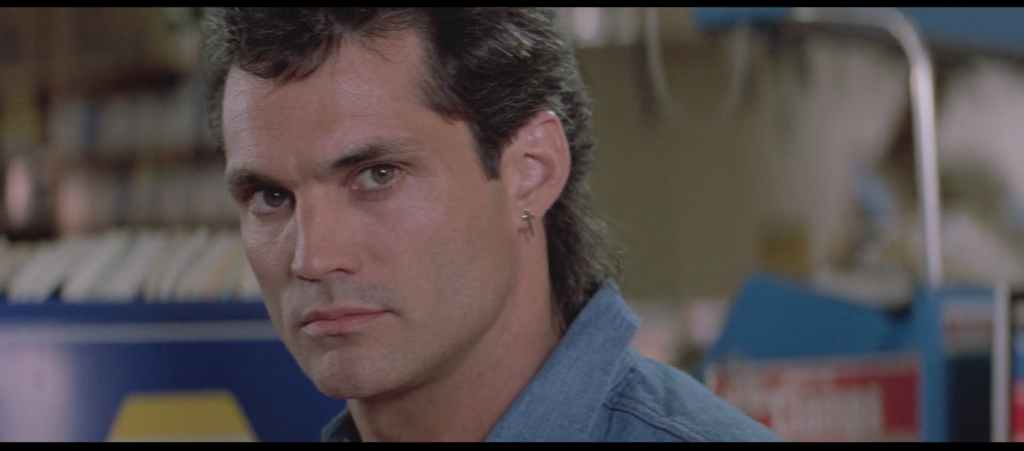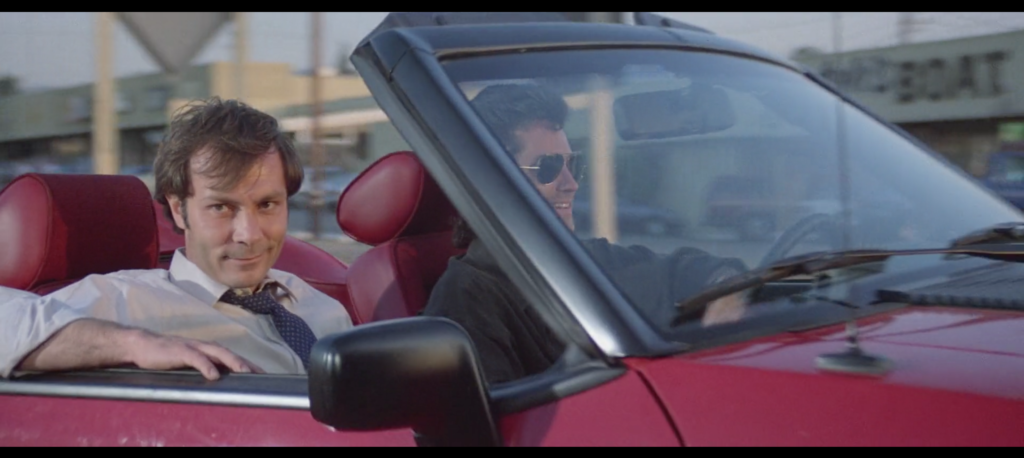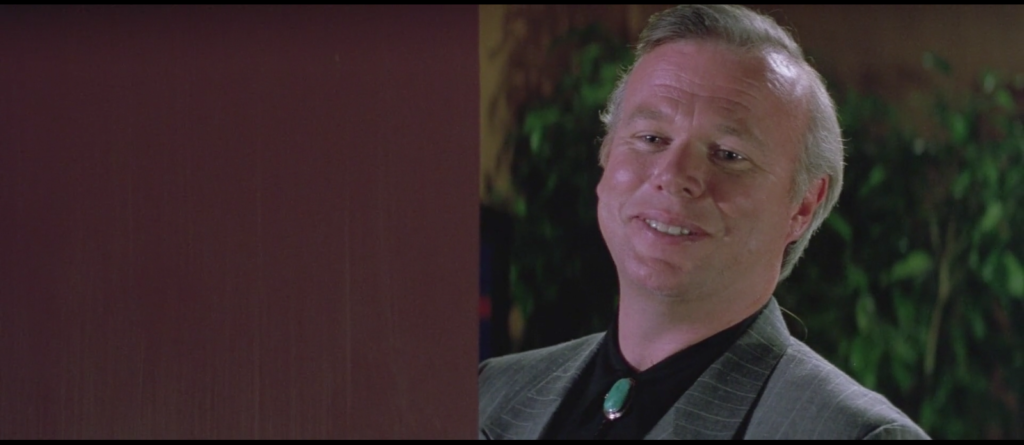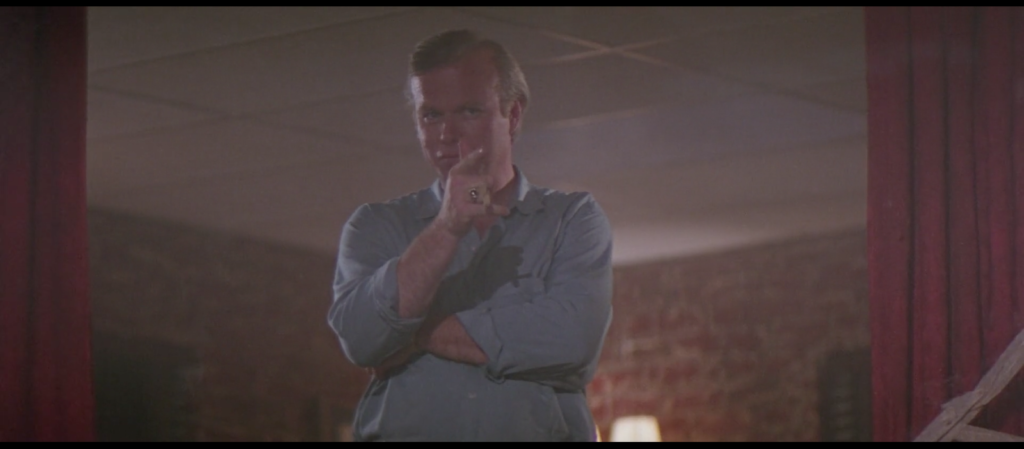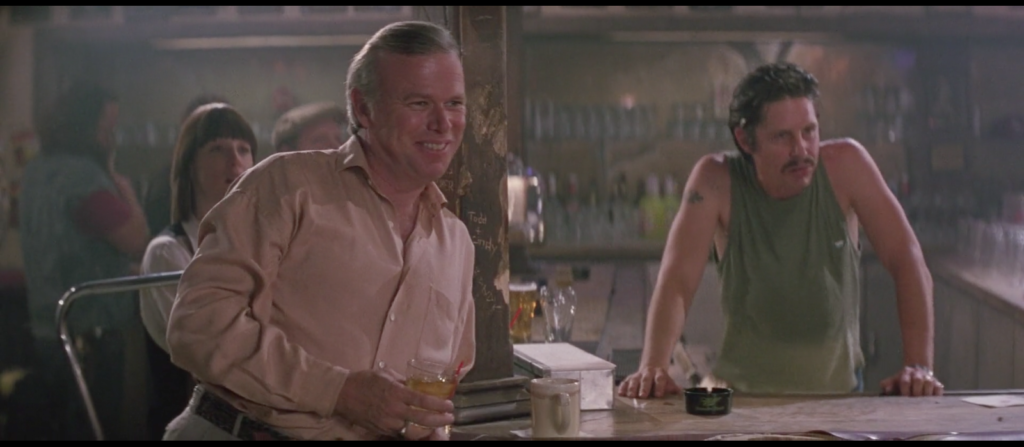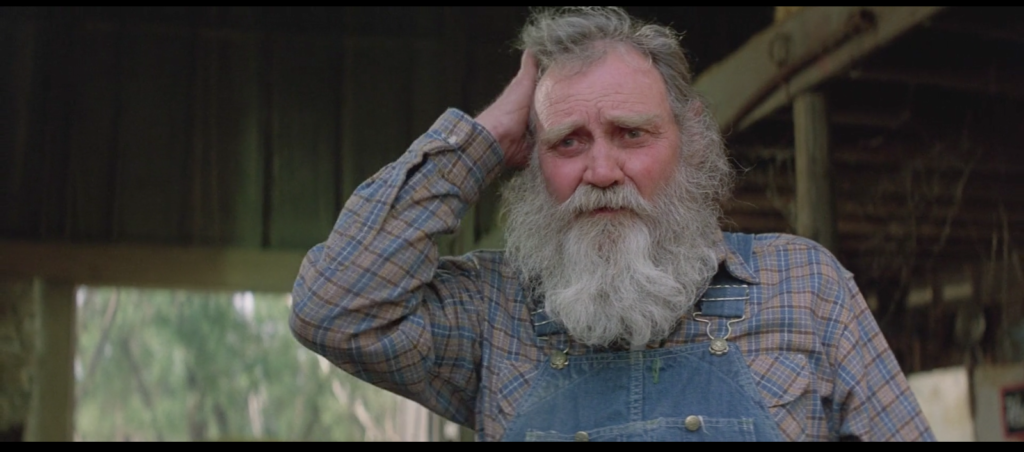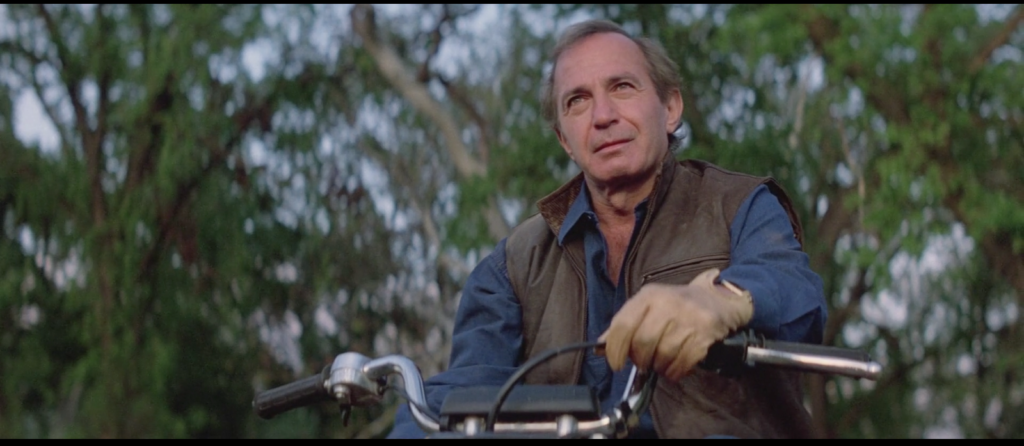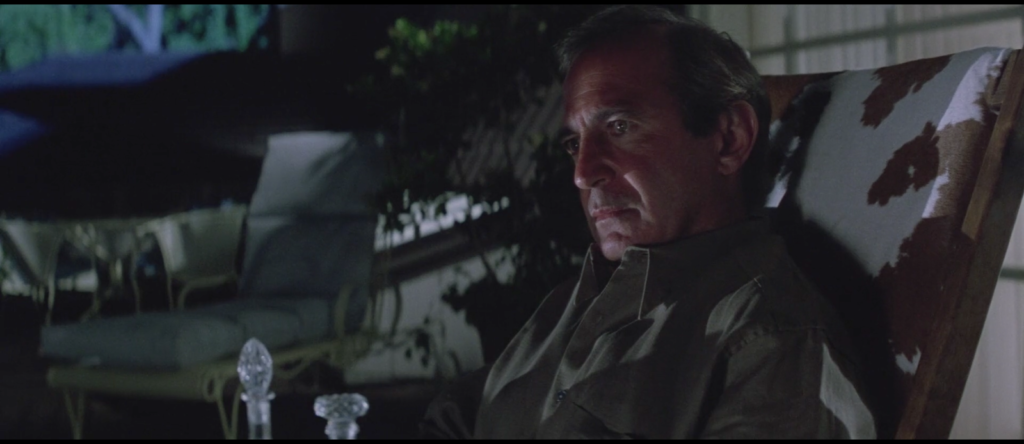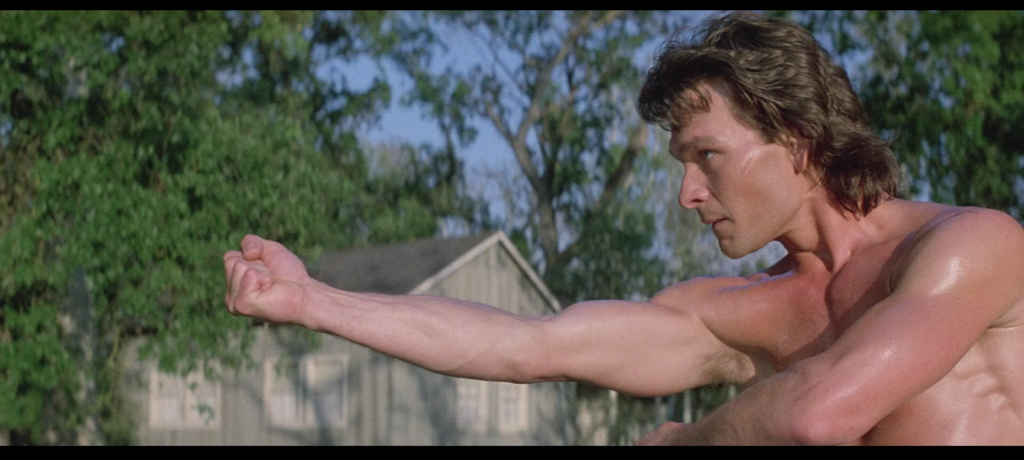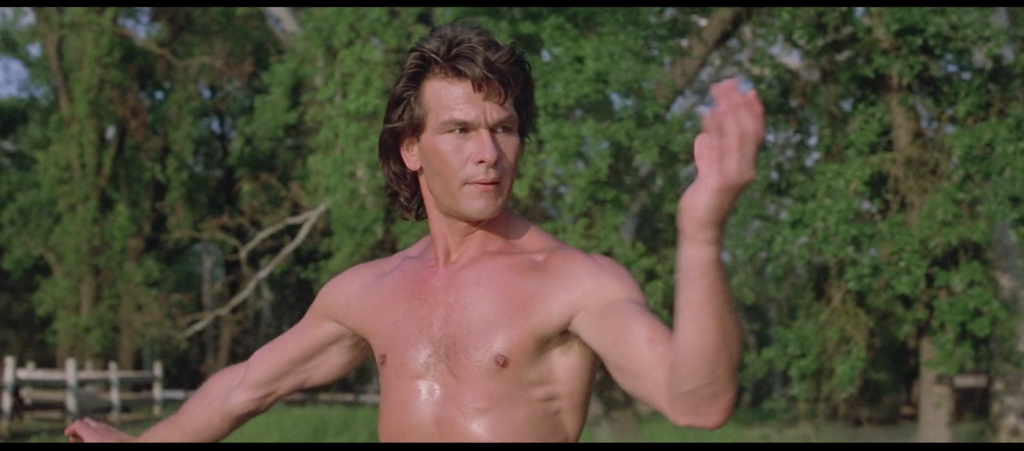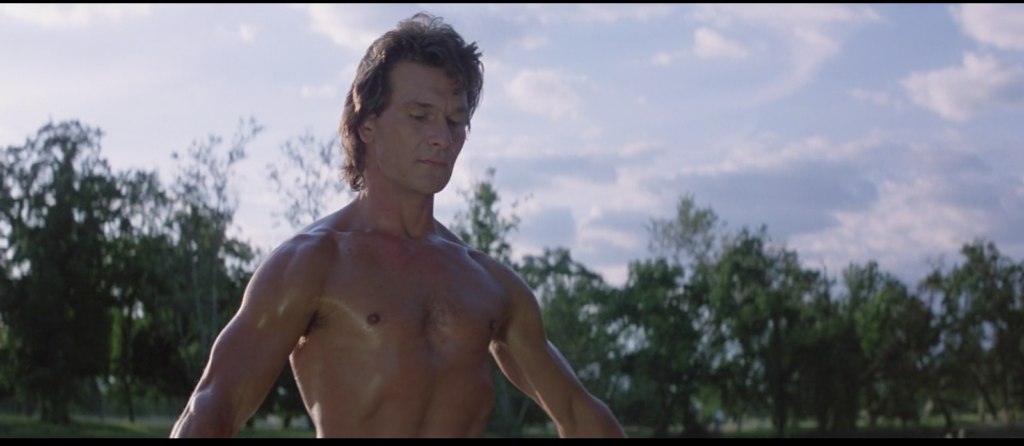Posts Tagged ‘tilghman’
349. “This is our town, and don’t you forget it.”
December 15, 2019Red Webster, Emmett, Pete Strodenmire, and Frank Tilghman have had enough of Brad Wesley. I mean, to put it mildly. Together they shoot him to death, though not before Tilghman turns Wesley’s “This is my town—don’t you forget it” back at him. The two men exchange a sort of slight smile after that. It’s the smile of men with secrets, if you ask me, though it would pass for an expression of resignation on one hand and triumph on the other to the layman.
Be that as it may.
The thing that strikes me about Brad Wesley’s death today is how quickly it follows the murder of his goons. The bodies of Morgan, O’Connor, Ketchum, and Pat McGurn are still warm, and Jimmy is probably just a few miles downstream, and blam blam blam blam, no more Brad Wesley. They were the iron fist with which Wesley ruled Jasper, from JC Penney to shining Fotomat. Take them away and the man is revealed as a paper tiger, albeit one capable of nearly murdering the best damn cooler in the business.
To put it another way, Brad Wesley fell when his goon squad was supplanted with another. Had Red, Emmet, Pete, and Tilghman joined forces earlier, perhaps they could have out-muscled Wesley’s muscle, or at the very least outgunned them. All they lacked was a fighting spirit, and Dalton gave that to them. It already was their town. All they had to do was rise up and claim it.
224. Is that Wade Garrett in your bar or are you just happy to see me?
August 12, 2019People have been placed on FBI watchlists for less than the way Frank Tilghman greets Wade Garrett upon the aging cooler’s entrance into the Double Deuce. “I know you,” he says, wielding the words like a tongue across Wade’s stubble, like Ramsay Bolton bidding farewell to Sansa Stark before she feeds him to his own dogs, like a flea leaping from a rat to the roughspun tunic of a fourteenth-century European peasant. If I were Wade Garrett I’d have turned around, gotten on my motorcycle, and driven right back to the topless joint with the “DON’T EAT THE BIG WHITE MINT” sign above the urinal. Fortunately for Dalton (busy getting pounded into hamburger out back) and Tilghman (Cui bono) and unfortunately for Wade Garrett himself (“IT WAS TAILS”), Wade Garrett is a braver man than I. He decides that helping his mijo out of a jam is worth braving whatever Gary Heidnik chamber of horrors Tilghman has hidden in the Double Deuce’s expensive redesign and heads to the service entrance to whip the shit out of some goons, and the rest is Road History.
What this makes me wonder, as did Tilghman’s thoroughly sinister introduction of himself to Dalton way back at the beginning of the film a couple hundred days ago, is how many coolers Tilghman went through before finding people who could stand to look and listen to him long enough even to entertain an offer. Maybe at some other bar in New York there’s some other NYU-graduate warrior-poet with some other grizzled graybeard of a mentor, who took one look at the corpse rictus Tilghman calls a smile and had him ejected from the premises immediately. Los Angeles, Chicago, New Orleans, who knows, there could be master-and-apprentice pairs of coolers scattered across these United States, all of whom told Tilghman “My eyes are up here, pal” and then sent him on his creepy way.
As with so much about Tilghman, we’ll never know the rest of the story. Perhaps that’s for the best. In elementary school my gifted class went to see an assembly on UFO encounters in which the speaker wondered if the sudden movements and disappearances attributed to alien spacecraft were not unlike what our own trips to the grocery store must read like to our housepets: We know where we went, but they don’t. I’ve seen this basic phenomenon described also with the metaphor of trying to describe a fork stuck through a paper plate from the perspective of one who can only see the tines poking out of one side, not the whole fork jammed into the other, let alone the human being holding it on the other. Tilghman is as Tilghman does, and any speculation as to what else he might be and do beyond the four walls of this movie must remain speculation. Wovon man nicht sprechen kann, darüber muss man schweigen; whereof one cannot speak, thereof one must be silent.
193. Why won’t they deliver
July 12, 2019Dalton may be all smiles, but Frank Tilghman has frustration to burn. Whiskey’s running low, you see, and oh how steamed he is about that. “I finally get this place just the way I want it and now we’re running out of booze,” he spits, with a sardonic half-laugh for emphasis at the end. “I’ve called every supplier I know,” he continues. “Why won’t they deliver.”
Expected a question mark at the end there, didn’t you? Yes, one would, wouldn’t one. But in that standard Road House flourish, the question is delivered as a statement. Yet something’s off here. This isn’t Doc or Dalton or Wesley supplying an answer they believe they already know—that Dalton feels entitled to collect money for beating people up, that Doc thinks Dalton’s life is too ugly to be a part of, that both Wesley and Dalton know he committed a crime not acted in self defense when he killed a man. Frank’s affect in every respect but the lack of a rising tone of voice indicates that he has no clue why people are refusing to sell him liquor anymore. It’s just a little thing that he phrases it as if he knows, right?
Well, Dalton knows the answer, that’s for sure. “Wesley,” he says authoritatively, before grabbing the phone and making a call we will later be able to deduce was to his mentor Wade Garett for help. It’s interesting, though, to watch Tilghman’s face here. When Dalton answers his “question,” he doesn’t react at all. No surprise, no “I knew it,” no “Jesus, he’ll stoop to anything,” no “goddamn that bastard”—flat. He just takes it right in stride.
Almost. His question is a non-question, yeah, and his response to the answer is nonexistent. But when Dalton turns toward the phone, look at Frank’s eyes. Follow them as he gives Dalton a quick once-over. It’s not like he hasn’t seen Dalton before, and as much of a pleasure as it is to look at the guy it seems like Tilghman’s mind should be on other things right now. Things like the matter of the liquor blockade of his bar, the culprit behind which Dalton has just named and against whom he now appears to be placing a call for aid.
Unless that is what’s on his mind when he looks Dalton up and down while the cooler isn’t looking. But why would that be? Why would Tilghman size Dalton up while thinking about Brad Wesley’s role in the Double Deuce’s plight? Why would he want to get a good look at the man who just informed him Wesley is responsible? Why would he sneak an analytic glance at the man he’s effectively placed in charge of battling Brad Wesley for control of the town, after feeding that man the information required to initiate the next round of hostilities? Why would he want to get a very close read on Dalton’s affect, his body language, the clues he might give as to how deeply he’s thought this matter through? Why did he not react with surprise when Dalton told him what he’d figured out? Why did he supply the question as if he already knew the answer himself? What is the specific concern regarding Dalton, and Wesley, and his own relationship with both men, that leads Frank Tilghman to act so suspiciously?
192. ‘Whiskey’s Running Low’: The Tragedy of Keith David in ‘Road House’
July 11, 2019The man in the red shirt is Keith David. You may remember him from his roles in John Carpenter’s The Thing and They Live, two of the best science fiction and horror films ever made. In each he plays the main foil to the protagonists—rough-hewn salt-of-the-earth working-class white-guy types, with tough-as-nails attitudes and impressive heads of brown hair, who find themselves unexpectedly drawn into conflict with forces larger than themselves. Road House, you’ll note, stars Patrick Swayze as a rough-hewn salt-of-the-earth working-class white-guy type, with a tough-as-nails attitude and an impressive head of brown hair, who finds himself unexpectedly drawn into conflict with a force larger than himself.
Naturally, in Road House, Keith David plays a bartender whose sole line of dialogue is “Whiskey’s running low.”
That’s not quite all there is to the role. His name, uttered by both Tilghman and Dalton in this scene, is Ernie, and getting named is an honor precious few supporting characters in this film enjoy. He’s mentioned by name more than all the other bouncers and bartenders and waitresses still employed by the Double Deuce at this point in the film combined, save for Carrie Ann, who says her own name and gets it yelled at her by Pat McGurn. Everyone else? Bupkis.
What’s more, he’s listed with a surname in the closing credits. This too is more than can be said for virtually anyone in the movie. Jimmy, for example, went by “Jimmy Reno” during filming—you can find interview clips with Patrick Swayze in which he calls that character by name, it comes up frequently in interviews with actor Marshall Teague, and it’s in the IMDb listing—but is merely “Jimmy” in every official respect. Dalton himself only gets a mononym unless you inspect his medical file.
Most strikingly, Keith David appears in the opening credits. He’s billed fifth, after only Patrick Swayze, Ben Gazzara, Kelly Lynch, and Kevin Tighe, and just before Kathleen Wilhoite. The actors who play Emmett, Red, and Denise all get lumped together in a single triple chyron, which is fair enough. Sam Elliott gets a “And SAM ELLIOTT” to conclude the cast listing, which is appropriate. Jeff Healey slides in later on via an “Featured Music Performance by The Jeff Healey Band” slug. Other characters you think might reasonably get listed up front—Jimmy, Tinker, O’Connor, Ketchum, Morgan, Pat, Jack—aren’t there at all. Ernie’s fellow bartender, who’s there since the beginning, is entirely uncredited.
If you’ve watched David deftly dance between antagonist, supporting character, and stealth protagonist in The Thing, or if you’ve watched his world-building alley fight with “Rowdy” Roddy Piper in They Live, you probably have some questions about all this. God knows I do.
As best I can ascertain, partially from half-remembered poorly sourced comments in various Road House posts across the internet, and partially based on my own conjecture, is that Ernie Bass was originally a much more prominent character, the bulk of whose storyline wound up on the cutting room floor. I suspect he was a famous bartender, whom Dalton brought in to elevate the Double Deuce’s standing further still—surrounding himself with a surrogate family of old friends which also included Cody, his bandmates, and Wade Garrett. While the material was cut for time, contractual obligations kept David in the picture and in the credits.
A questionable decision, to be sure. Were David cast in a fighting role he’d be an invaluable asset to the film, and even as simply a gnomic presence dispensing basso profundo wisdom behind the bar he’d be a huge get. Instead? He hands Dalton a coffee with a nod of acknowledgement. He tells Tilghman “Whiskey’s running low.” He hands Dalton a phone. He looks at Wade Garrett. He looks at Wade and Dalton together. Exit Ernie Bass, pursued by an editor.
189. All Smiles No Blues
July 8, 2019A partial list of things Dalton smiles at during the “Roadhouse Blues” scene in Road House:
- The parking lot
- The crowd waiting in line to get in
- The guy counting attendance
- Jack the bouncer
- The crowd to his left
- The crowd to his right
- The Jeff Healey Band
- The pool table area
- The dining area
- The crowd at the bar
- Ernie the bartender
- His coffee
- The crowd on the dancefloor
- Frank Tilghman
- The prospect of taking care of Frank Tilghman’s problems
And the night is still young for him, too! By the time it’s over he’ll also have smiled at Dr. Elizabeth Clay in his parking lot, Dr. Elizabeth Clay in his apartment, Dr. Elizabeth Clay in her car which he’s driving, Otis Redding on the radio, Dr. Elizabeth Clay on his erect penis, and Dr. Elizabeth Clay nude on his roof. (Otis seems like the odd man out there until you consider his vital role in that particular progression.) None of these smiles are sardonic or wry. None are directed at stop signs torn from the ground and speared through his car windows, or at people who have or soon will have tried to stab him to death. These are genuine smiles of happiness, from a man who finds himself surrounded with the best things in life: happy crowds, good drinks, admiring proteges, soul music (blue- and brown-eyed varieties), Kevin Tighe, open-roofed motor vehicles, public nudity, the welcoming sex organs of a beautiful woman with a doctorate degree. The Dalton Path leads to a far green country.
140. What’s better than this?
May 20, 2019Here, in a quiet moment near the end of the film just prior to the situation coming to a head so to speak, we see the goon in his natural environment. O’Connor, Ketchum, Morgan, Tinker, Pat McGurn: All of them have tucked their favorite short-sleeved shirts into their favorite pairs of jeans and settled in on the front lawn of the mansion owned by the Peter Pan to their Lost Boys, Brad Wesley. As you can tell from the shooting irons, this is not a company picnic or a cookout with the boys; they’re here to protect Brad Wesley from Dalton, whom they rightfully assume is on his way to kill them all because they murdered his best friend. You’ll have cause to wonder why, given the predictability of and ease of access to Dalton’s whereabouts—he in fact receives a phone call taunting him about the impending murder in the very location where that murder eventually takes place in his absence—they did not simply cut out the middleman as it were and murder him instead. Perhaps, given their superior numbers and lack of compunction about bringing guns to a knife fight and so on down the fight escalation scale, they did not split up to murder them both. Just blue-skying here: One could even imagine a scenario in which the large quantity of explosives the Brad Wesley organization has used to destroy Red Webster’s place of business and Emmett’s cottage could instead have been employed to blow up the Double Deuce (across the street from Red Webster’s store) or Dalton’s barn apartment (approximately two hundred feet away from Emmett’s house). It’s almost as if the goal were to deliberately goad the best fighter in Jasper into a mano a mano with a demented old man who likes JC Penney, reckless operation of motor vehicles, and music with balls. And if that were the case—well then, one would wonder, wouldn’t one, whether the very orchestration of such a plan signals a wish on the part of Brad Wesley’s men, or Brad Wesley, or some other and still more nefarious figure working behind the scenes, the hole in things, the Enemy, the piece that can never fit, there since the beginning, that Brad Wesley and his men be removed from the playing field permanently, and that if Dalton himself should die in the process of that removal, well, so be it.
But that’s crazy talk, isn’t it.
<Swearengen voice>Anyways,</s> the goons and their paymaster are to be congratulated on the success of their plan, which does indeed lure Dalton into the Wesley estate, at full speed, no holds barred, no quarter asked and none given. Few things will get an experienced killer in a killing mood than killing one of the men who trained them in the techniques that allow them to kill, and once the experienced killer is in that killing mood, he needs must find the people he desires to kill, and a good place to check is if one of them owns a mansion, then it’s that mansion. So kudos are due in that respect.
Until Dalton drops by, however, the goons are left to their own devices. Their mixture of vigilance and utter disregard for firearm safety is the purest visual expression of the goonsmanship levels evidenced in this film. Ketchum and the Bleeder? Silent sentinels, eyes at nine and six, ready for anything. Morgan, Tinker, and the sister-son? Holding a pistol the way you hold your phone when you’re trying to check the text that just came in but you’re doing a million things and you grab it at kind of an awkward angle but now you’re stuck with it that way until you put something else down, eating a lolipop, and scratching his back with the butt of a shotgun while saying “Remember that blonde? Shhyew. She could suck-start a Harley.” Ruthless efficiency coupled with a generated sense of wonder that any of these men lived past high school: That is the Way of the Goon. Bask in it.
Bask in it while you can, anyway, since all but one of these men will be dead within two and a half minutes.
099. The Phantom Menace
April 9, 2019WESLEY: This is my town. Don’t you forget it.
DALTON: So what does he take?
RED: Who?
DALTON: Brad WesIey.
RED: Ten percent…to start. Oh, it’s all legal-like. He formed the Jasper Improvement Society. All the businesses in town belong to it.
DALTON: You’ve gotten rich off the people in this town.
WESLEY: You bet your ass I have. And I’m gonna get richer. I believe we all have a purpose on this earth. A destiny. I have a faith in that destiny. It tells me to gather unto me what is mine.
RED: Twenty years I’ve watched Wesley get richer while everybody else around him got poorer.
TILGHMAN: Anyway, I’ve come into a little bit of money.
TILGHMAN: This is our town. And don’t you forget it.
097. “Anyway, I’ve come into a little bit of money.”
April 7, 2019Frank Tilghman has just met Dalton for the first time, after what one assume is years of hearing tell of his exploits from other barfolk. He explains he runs a little nightclub called the Double Deuce just outside of St. Louis. It used to be a sweet deal, he says. Now it’s the kind of place where they sweep up the eyeballs after closing, he laments. His face falls, ashen. He looks out over the bustling crowd at the Bandstand, the club where Dalton currently works, but it’s as if he doesn’t see it at all. Then he turns back toward Dalton and, with the most normal facial expression imaginable, he says “Anyway, I’ve come into a little bit of money.”
Oh, is that a fact?
In the past, when fleshing out the romantic backstory between Tilghman and Pat McGurn, I’ve theorized that one of Tilghman’s ex-wives’ doting mother left him a small fortune, having turned out to be much fonder of her daughter’s former husband than the daughter ever was. Perfectly harmless. I’ve also speculated that he was involved in one of those “seduce an old lady, get written into her will, and dump her overboard during a cruise” schemes, like Not Great Bob’s boyfriend did (allegedly) in Mad Men. You have to admit it’s possible.
But look at that grin again. Look at that rictus of arrogance and cruelty. This is the face he’s choosing to display to a man he’s going to spend top dollar on, a man who will turn the struggling Double Deuce into the hottest nightspot in a hundred miles, a man who will run the bad element out of the bar, a man who will almost singlehandedly destroy the organized crime ring run by the richest man in Jasper. Until he dies, that is, slain in the course of the battle with Dalton.
Slain by Tilghman.
The new richest man in Jasper.
You know the 7-Eleven, the Fotomat, the mall, christ, the JC Penney? Brad Wesley brought them to town, he says, and no one contradicts him. But if I were Dalton, I’d spend some of my mid-six-figure yearly salary on a forensic accountant. Shell corporations within shell corporations within shell corporations are involved, I’d imagine. And what address is listed for those corporations, in the end? Whose name is on the dotted line?
Cui bono?
095. Tilghman’s Affect
April 5, 2019Frank Tilghman has affect issues. That’s one way to describe it, and probably a mild way. At virtually no point during the entirety of Road House does the demeanor selected by actor Kevin Tighe track with the reality of his character’s surroundings. It’s why he spends the opening sequence grinning like the Joker even though from a narrative standpoint he’s more like Commissioner Gordon. It’s why he reacts to firing his piece-of-shit bartender (my own headcanon notwithstanding) like he’s getting divorced. And it’s why, when the Double Deuce is in the throes of a full-scale riot launched when a husband with a cuckold fetish decks a dude for refusing to pay to kiss his wife’s tits and his own bouncer goes berserk in response, he signals to Dalton with a smile and a “hey hotshot, come on up and see me sometime” finger point gesture. At that very moment he can see every piece of furniture in his seating area getting smashed into splinters, he can see human beings flying over the bar and into the bottles and glasses behind it, he’s watching people commit felony assault and attempted murder, he’s seeing people incur injuries that will potentially last a lifetime, and his face and body are doing the equivalent of that “chk-chk” sound you make when you wink at someone. It’s possible he’s the weirdest man in Jasper. It’s possible he has less concern for the lives of others than Brad Wesley. The greatest trick the devil ever pulled…
090. “That guy in the corner’s fuckin’ Dalton, man.”
March 31, 2019[Chorus: Pat McGurn and Morgan]
I heard Frank Tilghman hired fuckin’ Dalton
And yeah we’re fuckin’ fucked, that guy is fuckin’ Dalton
I heard Frank Tilghman hired fuckin’ Dalton
And yeah we’re fuckin’ fucked, that guy is fuckin’ Dalton
I heard Frank Tilghman hired fuckin’ Dalton
And yeah we’re fuckin’ fucked, that guy is fuckin’ Dalton
He’s firing somebody real, fired by fuckin’ Dalton
Send your goons to the bar, maybe he’ll assault them
[Verse 1: Tilghman]
Hold up, Jasper simmer down
Hiring the best, bitch, now he’s here in town
Flew to New York, saw him shirtless, lookin’ fine
Ooh, baby check him out, you’ll go Jeffrey Healey blind
(Uhh)
Hey Pat, black coffee
Serve this motherfucker cuz he drinks for free
Tell these motherfuckers who they think they see
Put his feet through your teeth then he’ll break your knee
Cuz he’s the cooler, the cooler cooler, like he’s your ruler
Teaching rules too, he’s gonna school you, don’t suffer fools too
He should carpool, like many fools do he searched for faith down at NYU
Hospitalize you, that’s what he will do
Here’s my money, gonna give you six figures, man
I thought you would be bigger, man
Wesley’s fuckin’ parties make too much fuckin’ noise
Break into Brad’s house, kill his fuckin’ boys
Beast
[Chorus: Pat McGurn and Morgan]
I heard Frank Tilghman hired fuckin’ Dalton
And yeah we’re fuckin’ fucked, that guy is fuckin’ Dalton
I heard Frank Tilghman hired fuckin’ Dalton
And yeah we’re fuckin’ fucked, that guy is fuckin’ Dalton
I heard Frank Tilghman hired fuckin’ Dalton
And yeah we’re fuckin’ fucked, that guy is fuckin’ Dalton
He’s firing somebody real, fired by fuckin’ Dalton
Send your goons to the bar, maybe he’ll assault them
[Verse 2: Morgan]
Ooh, I know you love it when I bounce a guy
Make you think about all of the incidents I trounced a guy
Go into the bathroom and ask Judy for an ounce to buy
Think I’ll tell him “You’re a dead man,” mispronounce a guy
Oh word? Ain’t heard of Wesley? He’ll denounce this guy
Beating up O’Connor, make him bleed some fluid ounces guy
Carrie Ann announced this guy, see his mullet flounces guy
Then ju—okay, I got it
Then just watch Jimmy as he pounds this guy
It will get awkward when we watch as Jimmy mounts this guy
I heard that his testes were sufficient for a dump truck
Then he said “Opinions vary” and I felt like such a dumbfuck
Gonna call Wade Garrett “Dad,” comparatively I’m a young buck
Then I’m gonna die offscreen while wearing moonboots, just my dumb luck
Yes, Lord, but for now I’m fit and able
Gonna pick some guy up, throw him through a table
I’m beast
[Chorus: Pat McGurn and Morgan]
I heard Frank Tilghman hired fuckin’ Dalton
And yeah we’re fuckin’ fucked, that guy is fuckin’ Dalton
I heard Frank Tilghman hired fuckin’ Dalton
And yeah we’re fuckin’ fucked, that guy is fuckin’ Dalton
I heard Frank Tilghman hired fuckin’ Dalton
And yeah we’re fuckin’ fucked, that guy is fuckin’ Dalton
He’s firing somebody real, fired by fuckin’ Dalton
Send your goons to the bar, maybe he’ll assault them
[Verse 3: Pat McGurn]
Uhh
I’m Pat, this the finale
A big truck at the Wagon Days rally
I’m behind the bar, taking money from the tally now
Told me take the train and told me not to dilly-dally
Mmm
Uncle Brad on the line, mad on the line
He’s opening two Dillard’s at the same damn time
Frank’s eyeing me like he still wants to have sex
Girl, I am John Doe from X
Girl, I’m Patrick McGurn
AKA Brad looks at me with concern
He gives me money that I do not earn
Lists me as a dependent on his tax return
Mmm
Kill ’em all, dead bodies in the hallway
Dalton’s involved, and my chest got in his knife’s way
Mustache thin, Morgan thicker
Sister-son, chickendicker
Beast
[Chorus: Pat McGurn and Morgan]
I heard Frank Tilghman hired fuckin’ Dalton
And yeah we’re fuckin’ fucked, that guy is fuckin’ Dalton
I heard Frank Tilghman hired fuckin’ Dalton
And yeah we’re fuckin’ fucked, that guy is fuckin’ Dalton
I heard Frank Tilghman hired fuckin’ Dalton
And yeah we’re fuckin’ fucked, that guy is fuckin’ Dalton
He’s firing somebody real, fired by fuckin’ Dalton
Send your goons to the bar, maybe he’ll assault them
085. The Baseball Player
March 26, 2019On a warm summer’s eve
In a bar down in Jasper
I saw “The Baseball Player”
Ersatz vintage, prob’ly cheap
Frank Tilghman was a-starin’
Out the window at the rumble
When Morgan overdid it
Then he began to speak
He said, “Son, I’ve made a life
Out of hurtin’ people’s livers
Knowin’ not to card ’em
By the way they held their eyes
And I heard that you’ll be stayin’
Out with Emmett by the river
Have a taste of my whiskey
And give me some advice”
So he handed me a bottle
And he ogled as I swallowed
Then I smoked a cigarette
And glistened in the light
And the night got deathly quiet
And his face made weird expressions
I said, “If I’m gonna be your cooler
I’m gonna be your cooler right
You’ve got to know when to hold it
Know your opponent
Know when it’s time for nice
And know when it’s not
You’re gonna pay me money
To drive a man’s face through a table
Cuz it’s my way or the highway
I’m extremely hot
Every cooler knows
That the secret to survivin’
Is knowin’ which guy’s throats to rip
And knowin’ who to kick
‘Cause no one is a winner
And every fight’s a loser
Go ahead and call me dickless
But I sure won’t show my dick”
And when I finished speakin’
I turned back toward the window
Crushed out my cigarette
And wandered to my Benz
And somewhere in his office
Frank Tilghman stood there grinnin’
Then doctored dirty words
In the graffiti in the Men’s
You’ve got to know when to hold it
Know your opponent
Know when it’s time for nice
And know when it’s not
You’re gonna pay me money
To drive a man’s face through a table
Cuz it’s my way or the highway
I’m extremely hot
You’ve got to know when to hold it (when to hold it)
Know your opponent (your opponent)
Know when it’s time for nice
And know when it’s not
You’re gonna pay me money
To drive a man’s face through a table
Cuz it’s my way or the highway
I’m extremely hot
You’ve got to know when to hold it
Know your opponent
Know when it’s time for nice
And know when it’s not
You’re gonna pay me money
To drive a man’s face through a table
Cuz it’s my way or the highway
I’m extremely hot
071. The face of Frank Tilghman
March 12, 2019This is Frank Tilghman, looking at Pat McGurn just before he confirms that he’s firing him, per Dalton’s recommendation. We’ve talked about this scene before, or rather for some reason I wrote a parody of “The Ballad of John and Yoko” by the Beatles about this scene before. We’ve talked about Frank Tilghman’s fist and Frank Tilghman’s grin and Frank Tilghman’s POV and Frank Tilghman’s Buick. But I wanted to take a closer look at Frank Tilghman’s face in this moment. Actor Kevin Tighe spends the bulk of Road House playing Tilghman as though he exists in an entirely different movie; here he looks as if he has an entirely different movie within this one facial expression.
Maybe he’s just registering the gravity of the situation. Dalton has no idea who Pat McGurn is, or who is real boss is more to the point, but Tilghman knows, and Tilghman knows what firing him really means. He’s coming at the king and he’s afraid of missing. Two seconds after Pat’s departure however he’s cracking a dumb joke about how it was a good night at the bar because “nobody died,” which, talk about tempting fate. But all things considered I prefer a different explanation.
The kid had started out as a barback. By the time he applied for the big job Frank didn’t even care he was obviously lying about bartending school. Pat was a wonder to watch back there, thrumming with the energy of youth and seemingly oblivious to its sweat-stained beauty. The first time Frank made a move closing up one night he thought “Why, the kid’s trembling!” but it wasn’t the kid at all.
It was sex at first, sex and that’s all. But it blossomed into something rich and beautiful, despite the their backgrounds. Pat’s mother, Brad Wesley’s only sister, never escaped the streets of Chicago where Wesley himself came up. Tilghman never saw much of the city. State school, baseball scholarship. Bounced from job to job, mostly managerial, never embarrassing himself but never really distinguishing himself either. His folks were old when they had him and by the time they passed there wasn’t much to pass on. He stumbled bass-ackwards into the Double Deuce in the terms of his second divorce, taking it on from his ex’s family. She never really cared for it anyway, but he thought the place had charm, so why not? If nothing else the responsibility would keep him from spiraling the way he did after marriage number one went to shit. And if he could drink to keep the part of himself he could never admit even to himself at bay, well.
Funny thing happened along the way though. Frank fell in love with the place. Then he fell in love with Pat. Music at the Double Deuce, Cardinals games a few times a season. Together. Even stopped drinking, not in time to save the two marriages but maybe in time to do right by the kid and the place of business they shared.
Then things went south, and don’t they always. Frank should have known where the Double Deuce was headed the night he swept up his first eyeballs after closing. He should have known he was so besotted with Pat that he was looking the other way at the younger man’s involvement in the bad element. Money got tight. That bouncer Morgan he brought on, well, he only made things worse. Morgan got close to Pat and Frank wasn’t worried, if you knew Morgan for longer than five seconds you’d know it wasn’t that way for him, but the big man brought out the worst in the kid, and not just the mustache, though yes, the mustache. Funny how all his life Frank worried he’d get a reputation (“You will get a reputation” his mother had said when they found him with Jim Conniff that summer day long ago, and no more was said about the subject because no more needed to be said), when the reputation he should have been worrying about was the bar’s. Different bad reputations for sure, but bad either way. Worse this way, that was the bitch of it. He couldn’t help what he was and there were days, and nights, he thought what he was was beautiful. Not even he could make that mistake about the Double Deuce.
Money got tighter. Security was a joke. The budget for replacement furniture alone was skyrocketing. For a while he thought of simply asking for a cut of the coke sales in the restrooms but didn’t want to bring down the kind of heat that action tends to draw. And Pat…well, Pat was Pat. Kisses sweet with Jack and Parliaments but something he used to see behind those eyes just wasn’t there anymore, if it ever was. Now there was something cold there, something hard, something sly and shifty and shitty. Had it always been there? Had Frank always been too big a fool to see it?
Before long he was coasting on fumes. All the accounts were dry, and the taps were soon to follow. Then one night—and Morgan was standing there in the door the whole time, goddammit how could he have been so stupid—Pat approached him. Not like that, that was over, neither of them had said so because neither had needed to. (Mama would have understood that, he’d thought to himself with a chuckle that tasted like battery acid.) Maybe that would have come to a head eventually, maybe he’d have quit or Frank would have asked him to. Maybe.
But Pat, see, he had this uncle, fella name of Brad Wesley. Yes, the Fotomat. Yes, the ribbon-cutting at Pete Stroudenmire’s Wagon Days. C’mon Frank, you been in Jasper long enough to know Brad Wesley. Throws some good parties, yeah, inn’t that so Morgan? Anyways Uncle Brad, he’s a businessman, all kinds. An investor, you might say. Helping out people all over town, like that Red Webster cross the parking lot. He’s got some cash, for one thing. Liquor too, biggest distributor in the county. Three counties, that’s right Morgan, thanks man. Three counties, Frank! And he’s author-rized me to invite you to his place for breakfast Sunday. Oh you don’t need to know why yet, Frank. Let’s just say it’ll be worth hearing.
C’mon, Frank. For old time’s sake.
Then years and tears and eyeballs later, the second ex’s mother died and wouldn’t you know it, she was fonder of Frank than she’d ever let on. With that kind of money he could have just blown town, set up shop in the Keys, or hell, just retired there. But no, goddammit, no. Let Brad Wesley win? Let him finish doing to the Double Deuce what he’d done to Jasper? To Pat—this Pat-thing behind the bar, wearing Pat’s smell and laughing his laugh and as hollow as the foundation wood that time Frank’s old man showed him the termites? Seemed to Frank the termites had gotten their share, and more than. Seemed to Frank the time had come to, for once in his life, fight.
And he knew the name to help him do it. Everyone did. And was the man the named belonged to beautiful? Yes he was.
But Frank Tilghman had learned his lessons from the barback. This was not about love, or if it was it wasn’t that kind of love. This was a land-love, a legacy-love, a kind of love Frank Tilghman never felt more strongly than when he looked into the twinkling void Brad Wesley’s eyes and felt it slipping away. It was a love worth the fight.
But oh it was hard, firing Pat. Easy for the cooler maybe, but not for Frank Tilghman, no. No, it was hard and sad and a battery-acid bitch of a thing, and did he have any idea he still felt half this much, half this strong, about the man Pat used to be, the Cardinals game man, the Jack and Parliaments man, the man he’d trembled for? He did not. He felt that feeling inside of him, fighting to get out, pounding against this ears, his heart, his forehead, his hands, the back of his own eyeballs. Who’ll sweep them up, he thought, and fought back what seemed close to madness.
And the feeling caught the words in his throat and held them there. Couldn’t have seemed long to the others, maybe they didn’t even notice at all, but in that Miller Genuine Eternity of a moment Frank Tilghman did not know if they’d ever come out at all. Get out, then, Get out he heard himself say, and it was over.
Almost. He heard Pat’s laugh as he left like a distant thunder and it made him nervous. He cracked a joke, barely realizing what he was saying but realizing even as he said it that this was his last shared thing with that man, like he was giving him a reason to laugh that would travel back in time for him to hear, just to stop that laugh from being the cruel thing it was. The cooler spoke again then. It’ll get worse before it gets better, he said. In that moment Frank Tilghman thought he’d never heard a truer thing in his life.
066. Frank Tilghman’s fist
March 7, 2019One thing I never noticed before starting this project, one thing I never noticed before tonight in fact, one thing I never noticed despite watching Road House dozens of times over the course of nearly fifteen years, is that when Brad Wesley’s goofiest goons, Tinker and O’Connor, come to the Double Deuce with Wesley’s nephew Pat McGurn to force Frank Tilghman to overrule Dalton’s decision to fire Pat under threat of physical harm and the cessation of liquor shipments to the bar due to Wesley’s control over distribution in the Jasper, Missouri metropolitan area, and Dalton expresses skepticism about the idea, and Pat almost instantly loses his fucking mind and attempts to slice Dalton open with a knife the size of a Little League baseball bat, and Dalton breaks his nose and tosses him through a plate glass window, and O’Connor assaults him and they both go tumbling through the place where the window used to be, and they fall first to a raised dais and then make their way to the main floor below after O’Connor bumrushes him over the railing, and Dalton pounds the crap out of him and eventually beats him unconscious, and doesn’t even bother to deliver a coup de grace, just kind of holds O’Connor up by his jacket for a moment and then drops him to the ground in disgust, and meanwhile Tinker, who during Dalton and O’Connor’s initial fight in Tilghman’s office punched Tilghman in the gut and then sliced Dalton open with his own knife and then punched Dalton in the face before Dalton kicked him in the chest for leverage to thrust himself and O’Connor through the window, meanwhile Tinker he suckerpunches Younger when he rushes through the door to see what’s going on, but then Hank comes in to help and he and Younger incapacitate Tinker and punch him in the gut while holding him still which is the kind of thing villains do but all’s fair in bouncing, and as Jack and Hank and Younger drag the punchdrunk bodies of their enemies through the bar and presumably to the exit, and Dalton is all covered in sweat and blood and getting ready to head out the back door and go seek medical attention, Tilghman, you remember him, Tilghman staggers over to the broken window and makes eye contact with Dalton and raises his right fist in a gesture of triumph and solidarity that’s one of the most ridiculously obsequious things Tilghman does in the whole movie, which in the parlance of our times puts it in the running for most ridiculously obsequious thing worldwide, I mean Tilghman contributed nothing to the fight, he just got winded by Tinker until he was rescued by the other bouncers, but there he is, small business owner, vicariously victorious in his non-worker role, and Dalton gazes into the fist of Frank Tilghman, as he raises that five-sided fistagon, as the bodies get dragged away.
064. I Thought You’d Be Bigger Vol. 1: Tilghman
March 5, 2019At the end of their first encounter Frank Tilghman tells Dalton “I thought you’d be bigger.” This is Road House‘s primary recurring joke; you’ll hear it two more times from two other people. It’s probably swiped from everyone telling Snake Plissken “I thought you were dead” in Escape from New York, for what it’s worth. It’s a groaner, and it’s endearing in its groanerness over time.
It is also a weird thing to say to someone you just met. It’s a weird thing to say even if they’re a person whose job is usually associated with being of a certain size. Imagine meeting a professional wrestler or basketball player and saying that: You can picture the mechanical smile and hear the canned response already, right? Because chances are it’s not the first time the person in the job usually performed by a bigger person has been made aware that they are, comparatively speaking, smaller. It’s more likely that they’ve thought about this for literally decades, like since they were in first grade, than that this charming bit of banter will catch them delightfully unawares.
Frank Tilghman is a weird guy, though, whether by design or by Kevin Tighe’s inability to play him any other way. (A reader I’ve since argued with because I think it’s more likely Steven Spielberg has cinema’s best interests at heart than Netflix does suggested he auditioned for the Brad Wesley part, got Tilghman instead, and simply decided to play the role as Brad Wesley anyway, and it’s a damn good theory.) If you could dress a leer up in a bolo tie, that’s Frank Tilghman. He looks like a police sketch based solely on an eyewitness saying “He was some kind of pervert.” If you can watch him during the opening of this movie and not assume he’s the villain of the piece, I think that constitutes a Turing test failure.
Nevertheless he is one of the good guys, he has no ill intent toward Dalton, at no point does he do anything to antagonize or undermine or bamboozle or even overtax Dalton during his employment at the Double Deuce. This only makes “I thought you’d be bigger” even weirder.
Yet the way he says it is the weirdest thing of all, way more than the mere fact of saying it. He’s closes a deal bringing the best young cooler in the nation into the fold for a cool mid-six-figure salary, with no set start date. He does this while watching Dalton a) stitch himself up from a knife wound Tilghman also watched him incur minutes earlier, and b) summarily quit his current job while treating the owner of the bar he’d worked in like dogshit. And what does he do on his way out the door but pause, flash that unmarked-van grin, and say “You know, I thought you’d be…bigger.” The ellipsis represents a pause so pregnant with implication and innuendo its water is breaking, and the emphasis on bigger is definitely in the original, and did I mention he literally looks Dalton’s shirtless body up and down as he says this?
Now then. Do we have reason to believe Tilghman lusts after Dalton? Yes: Dalton is reason enough for anyone to lust after Dalton. Do we have reason beyond that? Yes: My theory that he and Pat McGurn were at one time involved romantically for one thing, or my other theory that the mysterious fortune he’s suddenly come into that allows him to renovate the Double Deuce and hire Dalton to keep the place secure came from an old rich widow he seduced as a closeted gigolo, persuaded to change her will to make him her sole beneficiary, and then tossed over the railing of a cruise ship, like the “Not great, Bob!” storyline from Mad Men, would (if true) indicate he is attracted to men and also makes destructive decisions in that regard. Are we intended to read his “I thought you’d be…bigger” as both a come-on and a sexualized dick joke? Yes: Our eyes and ears are not lying to us.
Do we need to respond with the kind of gross shitty gay-panic laffs we might have expected from movies and audiences alike for decades prior to this film’s release and at least a couple decades after it? No! The proper way to respond is this. First, to paraphrase RiffTrax’s Mike Nelson, the question of whether Kevin Tighe is trying to bed down Patrick Swayze, or the character equivalents of same, is a fascinating one on its face. It’s like when you learn Kate Beckinsale has a kid with Michael Sheen, which many people just learned when they also learned Kate Beckinsale is fucking Pete Davidson, the Saturday Night Live lotto winner who was previously fucking Ariana Grade. “A lot going on here,” I believe is your American expression, yes?
Second, and more importantly, this is a workplace safety issue, because Frank Tilghman absolutely is sexually harassing his new employee here before his first day on the job! Frank Tilghman may be on the side of the angels where the larger war for the soul of Jasper, Missouri is concerned, but he is without question an awful boss. Remember that before Dalton, Tilghman’s hires (that we know of) include two Brad Wesley goons and an extremely surly and obvious coke dealer and a guy who allows teenagers into the bar so he can have sex with them. The fish rots from the head.
Seen in this light, “I thought you’d be…bigger” becomes more than a come-on or a dick joke. It’s a cry for help. Frank Tilghman knows the magnitude of the task ahead of him—not cleaning up the Double Deuce, that’s just a metaphor, but cleaning up Augean stables of his very soul. To Tilghman, that is Dalton’s true task. Beneath the clumsy curiosity about his new hire’s penis lies the real question: Is he man enough to make me whole?
054. The Ballad of Pat & Tilghman
February 23, 2019Standing in the bar down in Jasper
Sweeping up the eyeballs for thrills
My bartender’s Pat
Hey, at least I have that
Until when Dalton said he’s skimming the till
Christ, you know it ain’t easy
You know how hard it can be
A man named Brad Wesley
He’s gonna crucify me
Finally found myself with some money
Thought I’d fix the place up just right
Dalton helped me to learn
That my man Pat McGurn
Costs me about a hundred-fifty a night
Christ, you know it ain’t easy
You know how hard it can be
A man named Brad Wesley
He’s gonna crucify me
Pat McGurn’s the son of Brad’s only sister
Canning him’ll take me some nerve
I may own the bar
That only takes me so far
Cuz Mr. Wesley owns the liquor I serve
Christ, you know it ain’t easy
You know how hard it can be
A man named Brad Wesley
He’s gonna crucify me
Wesley takes my money almost every day
“Jasper Improvement Society”
It’s his town he said
Oh boy when he’s dead
The killers will be four men who are old (Tink)
“Take the train, consider it severance”
Pat looks at me raising his brow
Incredulous Pat:
“I didn’t hear you say that”
I stammer “Well, I’m sayin’ it now”
Christ, you know it ain’t easy
You know how hard it can be
A man named Brad Wesley
He’s gonna crucify me
Pat McGurn’s my headcanon lover
Firing him makes me start to pout
His voice is a purr
When he asks “are you sure”
Takes all I have to whisper “get out”
Christ, you know it ain’t easy
You know how hard it can be
A man named Brad Wesley
He’s gonna crucify me
A man named Brad Wesley
He’s gonna crucify me
034. Thru the Eyes of Tilghman
February 3, 2019It goes ill with the Double Deuce. Frank Tilghman colorfully describes it to Dalton upon their first meeting as “the kind of place where they sweep up the eyeballs after closing,” and other than the lack of actual traumatic globe avulsions nothing we witness when we arrive contradicts this. It’s a hellhole. The bartender is a nepotism hire who robs the joint blind. The band gets pelted with bottles when they take five in order to urinate. The chief bouncer starts fights. Another bouncer fucks teenage girls in the supply closet. A waitress sells coke in the bathroom (presumably interfering with those customers who wish to snort coke in the bathroom, as is custom in classier establishments). Bottles, glassware, and furniture get smashed as regularly and thoroughly as the customers do. The owner is forced to waste precious man-hours bowdlerizing graffiti.
This much we know—now, anyway. But during the opening sequence, prior to our first visit to the Double Deuce, prior even to Tilghman’s description of the place to Dalton, we don’t know any of this unless we have watched the entire film before. That opening sequence, which depicts Frank Tilghman’s journey through the capacity crowd at the massively popular Bandstand where Dalton works at the time, is one of the reasons Road House rewards repeat viewings: Only people who’ve already witnessed the nightmare that is the pre-Dalton Double Deuce can understand what the hell Tilghman is doing.
In short order, Frank Tilghman marvels at…
- a handrail
- a bartender pouring shots
- a cash register ringing up a sale
- a waitress carrying a tray of drinks
- a man lighting a cigarette for an attractively dressed woman
- a credit-card transaction
- a man leaving a large cash tip
- a bar band
Remember, and this is key: Frank Tilghman owns a bar.
If you think I’m kidding about Tilghman “marveling at” these things, watch actor Kevin Tighe’s eyeline as he looks at each of these things in turn, whether within frame or via match cuts to the actions and objects in question. Then look at his face afterwards. He’s impressed. Thoroughly so. He takes it all in so intently that he reads like a villain casing the joint. Granted, he reads like that all the time, but as we’ve established, nothing that happens during the opening happens by accident.
You wanna know how bad things have gotten at the Double Deuce? Frank Tilghman, who owns a bar, looks at the basic components of literally any bar on earth like the apes look at the monolith in 2001. Forget the eyeballs on the floor. Just follow the eyeballs in Tilghman’s head.
016. A Great Buick
January 16, 2019Where to begin with Frank Tilghman. As played by Kevin Tighe, silver-haired proprietor of the Double Deuce is a singularly unpleasant person to observe. He walks like a man who’s sneaking up on you even when he’s coming at you straight on. His smile is stuck in the “leer” setting. His eyes gleam with the dubious good cheer of a man who knows a secret enjoyable only to himself, like the retiree who leaves out bowls of antifreeze for the neighborhood cats, or the assistant manager at the Stop & Shop who occasionally rubs his genitals on the produce. He is the first main character we meet, when he shows up at the Bandstand to hire Dalton; anyone who doesn’t assume he’s the villain from his look and behavior during that sequence should be a prime target of the social-engineering hackers your office information-security training module warned you about. Yet he isn’t the villain, because somehow there’s an even weirder and more inappropriately chipper old man out there waiting for us.
But until we meet Brad Wesley, the only proof of Tilghman’s good intent we have—virtually our only glimpse of his interior self at all—is when he changes the word “FUCK” to “BUICK” in the graffiti next to the Double Deuce’s payphone.
I won’t say I know what you’re thinking, because when Tilghman’s the topic of discussion all thoughts are permitted. But you might be thinking “Changing an obscene lavatory-wall come-on into a classified ad for a used car isn’t necessarily Good Guy behavior. The whole thing smacks of Capital.” That much is true. It’s the way Tilghman goes about this completely ridiculous act of appropriation that indicates his true character.
After hanging up the dangling handset back in the cradle, he notices the vulgar legend “FOR A GREAT FUCK CALL 555-7617,” which stands out amid all the other crude scribbles (“KATHRN THE GREAT & MR. ED” is written in white nearby, for instance) due to its size and bright red color. Looking over his shoulder, as if he’s the dirty-minded solicitor who might get caught by the owner of the bar, he produces a black Sharpie, unconvincingly converts the “F” to “B,” and slips an “I” between the “U” and the “C.” Voila: FUCK is now BUICK. Somewhere out there, the Four Car Salesmen of Jasper, Missouri rest a bit easier. (They’re most likely in Jasper, Missouri, admittedly.)
Then, before smiling in self-satisfied fashion and walking away, comes the coup de grace: He adds a little dot over the “I.” Yes, everything is in all caps, and no, he doesn’t care. He’s going to dot his I’s and cross his T’s, goddammit, even if it costs him in terms of verisimilitude. A man with pretensions to class that unwavering is absolutely a man who’d hire a wandering philosopher-bouncer to clean the joint up for a mid-six-figure yearly salary with no ulterior motives whatsoever. I respect this strange man. Not enough to risk death every night so that his house band doesn’t have to play behind chicken wire for safety’s sake anymore, perhaps, but I respect him.
013. Men look at Dalton
January 13, 2019When men look at women in Road House it means trouble. Steve the bouncer ogles his teenage would-be conquests. A husband with a cuckold fetish and a goofball barfly fetishize and fondle his wife’s breasts. A belligerent drunk starts a knife fight when people try to prevent him from watching his girlfriend dance on a table. Brad Wesley throws an absurd string-bikini pool party for his army of goons. A horned-up soldier rushes the stage in the topless bar where Wade Garrett works. Denise strips in front of the Double Deuce’s wolf-whistling bad seeds under Wesley’s approving eye in a strange act of macho-sexual judo. With two exceptions—the superimposition of the film’s title over an anonymous woman’s rear end, echoed by Wade hating to see Doc leave but loving to watch her walk away—the traditional male gaze is an indication that something is wrong.
When men look at Dalton, it’s different. And men look at Dalton alright. All kinds of men, for all kinds of reasons.
When they first meet, goons like Karpis and Jimmy lock eyes with Dalton in staredowns that sizzle with psychosexual challenge. (In Jimmy’s case the sexual element is made abundantly, infamously clear later on in the film.)
Frank Tilghman stares at Dalton and smiles over and over again, like a man seeing his favorite meal on the way over to his table. “I want you,” he says during one such glance, followed in that same conversation with a knowing “I thought you’d be bigger.” “He’s good. He’s real good,” he says to another man during another. Honestly Tilghman is such a strange character that he probably deserves an essay series of his own, but his open near-worship of Dalton is a start.
Both Dalton’s friendly landlord Emmet and his evil neighbor Wesley watch Dalton perform tai chi, shirtless and slick with sweat. Wesley has the look you often see on the faces of men in movies who’ve caught a glimpse of a topless woman through a window. Emmet looks like he’s questioning a whole lot about the world and his place in it.
Wesley even watches Dalton and Elizabeth have sex. You might think that Elizabeth is the object of the gaze here, but at no other point in the film does Wesley bring her up as a point of contention between himself and Dalton, even though their relationship does seem to catalyze a new level of hostility between the two men. There’s no “she’s mine, if I can’t have her no one will,” and when he talks to her about Dalton it’s to express regret that she’s wound up with a lowlife drifter, not to threaten her to come back to him. He only has eyes for Dalton.
And honestly, who wouldn’t? Look at him.
By constantly showing us men who visually appreciate Dalton, Road House models behavior for its primarily male audience. Which is not to say women were not a target as well. Surely a decision was made to capitalize on the sex symbol status of the man who plays Dalton, Patrick Swayze, for the women in the audience—by then he’d starred in the smash hit Dirty Dancing, and another romantic blockbuster, Ghost, was on the horizon; his sex scene with Kelly Lynch set to Otis Redding beat the pottery scene with Demi Moore set to “Unchained Melody” to the punch.
But Road House‘s life since its theatrical release has been one of basic-cable afternoon screenings for dudes. I myself never caught it that way, but I first saw it during a Road House/The Warriors/The Road Warrior triple feature with a bunch of drunk and high friends, which is more or less the same idiom. I came away from my first viewing feeling just an unbelievable amount of affection and admiration for Patrick Swayze, an actor I’d never really thought about at all before. When he was diagnosed with pancreatic cancer, I held a Road House/Steel Dawn/Point Break triple feature at my place and charged everyone a twenty-dollar donation to pancreatic cancer research for admission. I love Patrick Swayze just as I love Dalton. I believe these shots of men looking at Dalton, capturing the blend of admiration, envy, desire, and awe they feel when they look at him—call it the male swayz—are, at least in part, the reason why.

